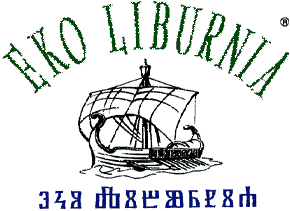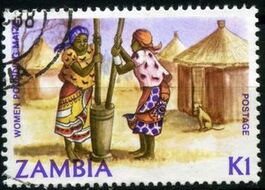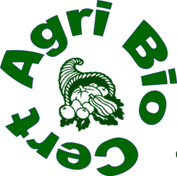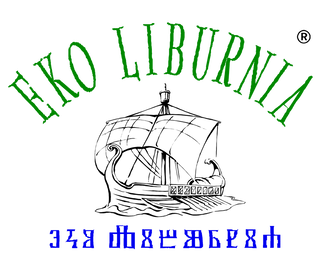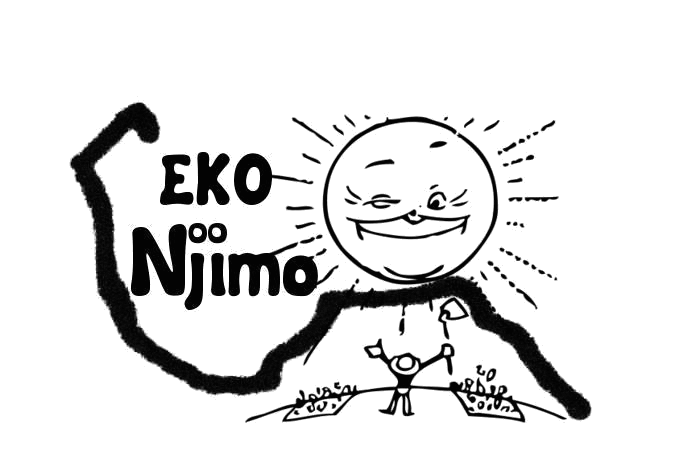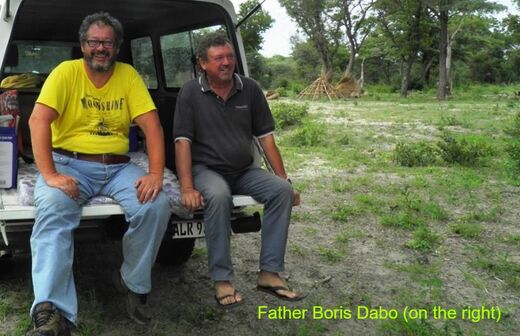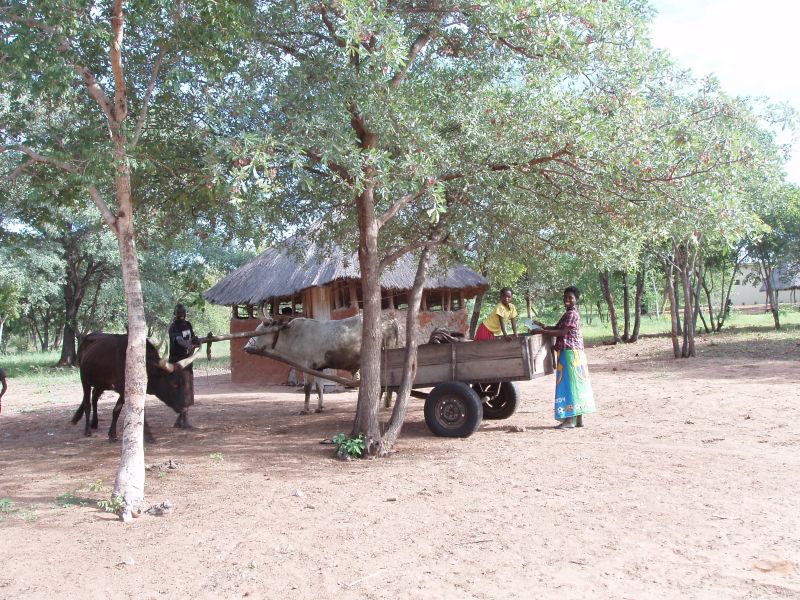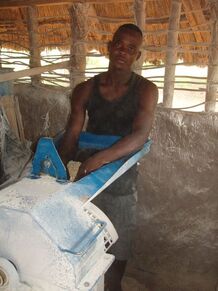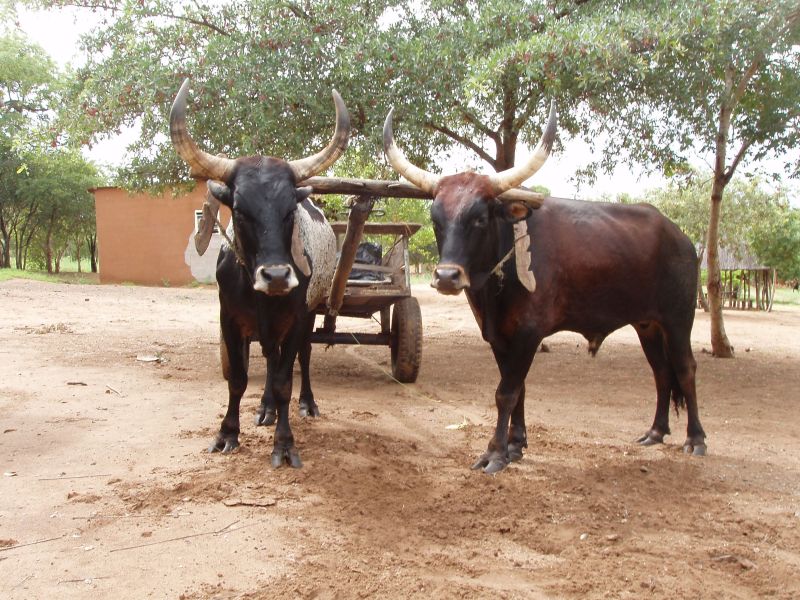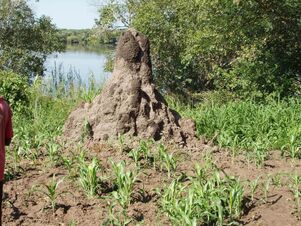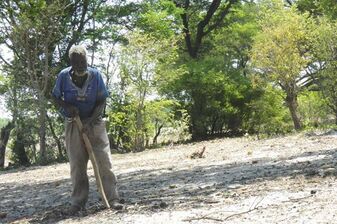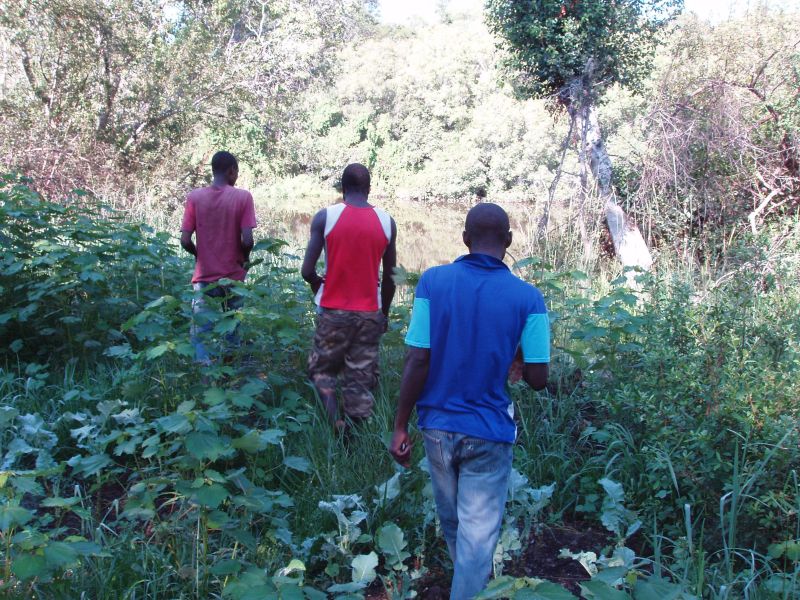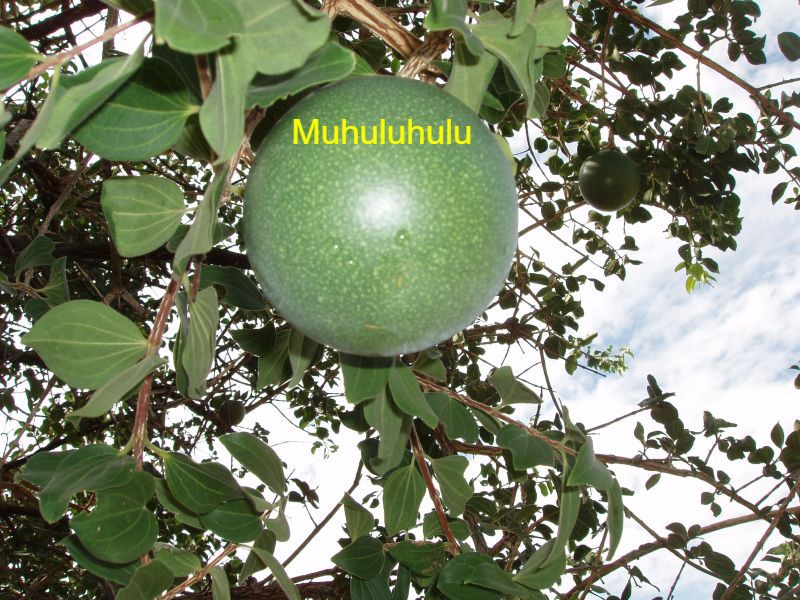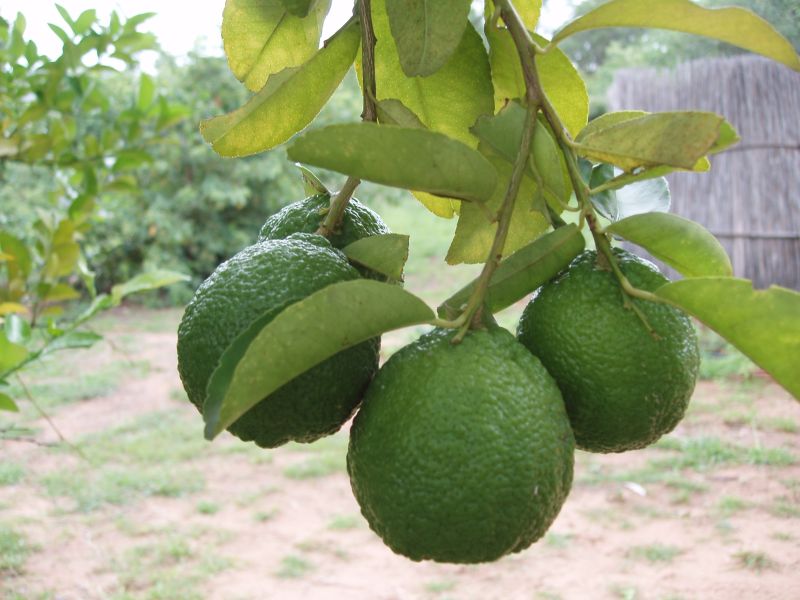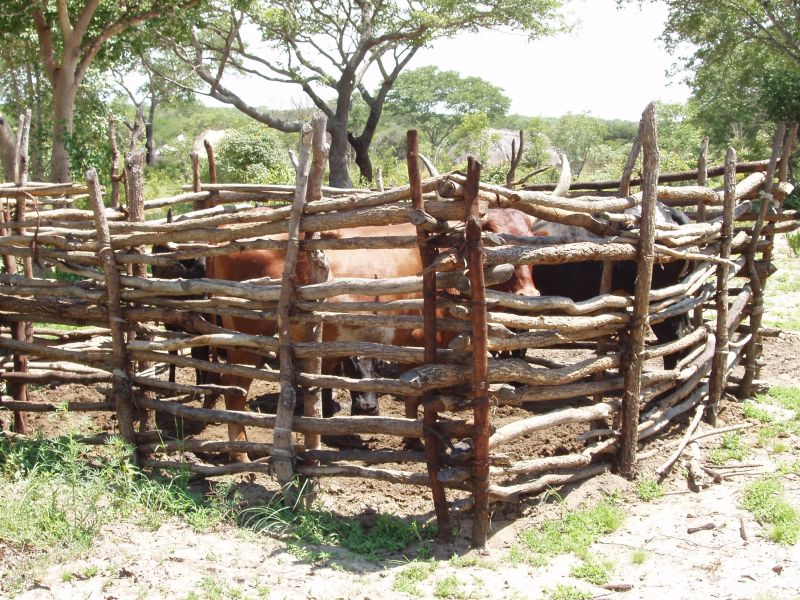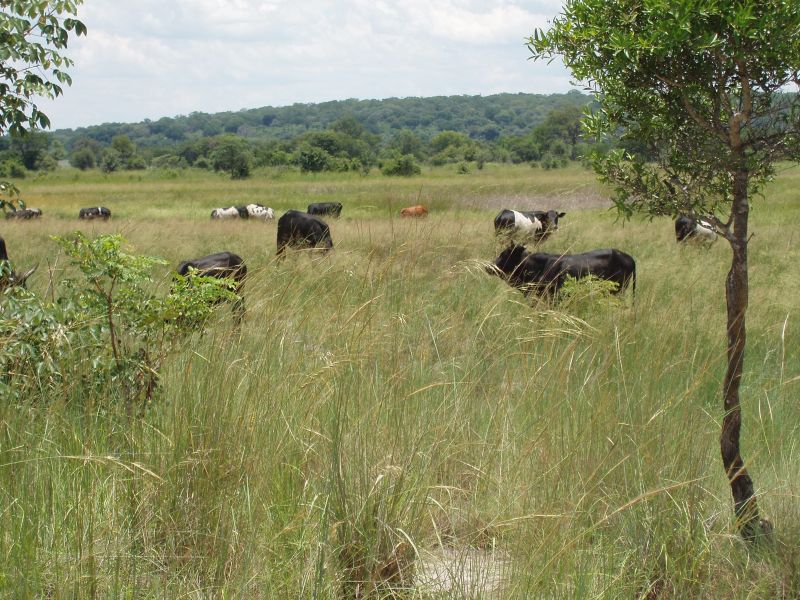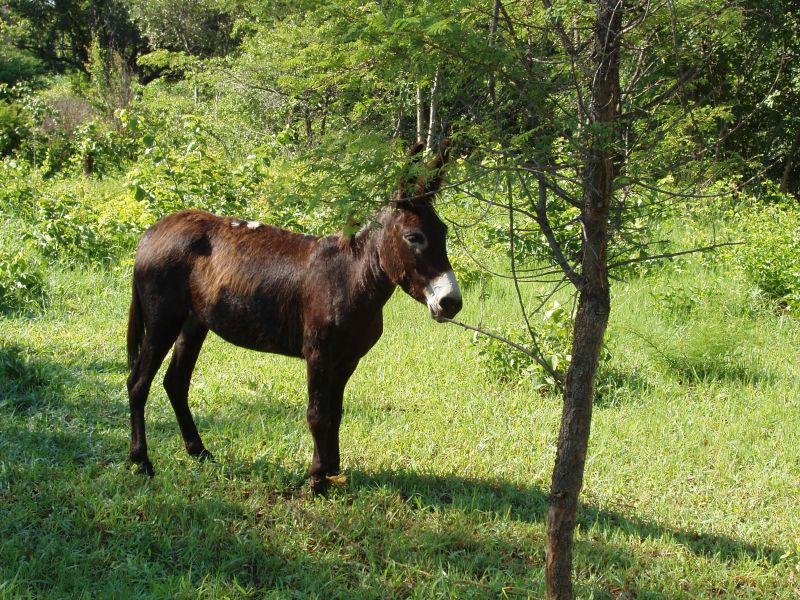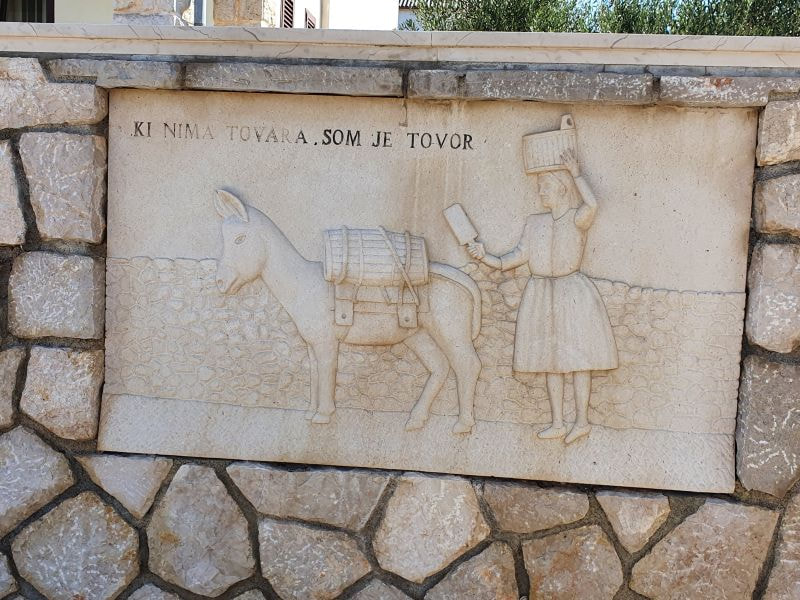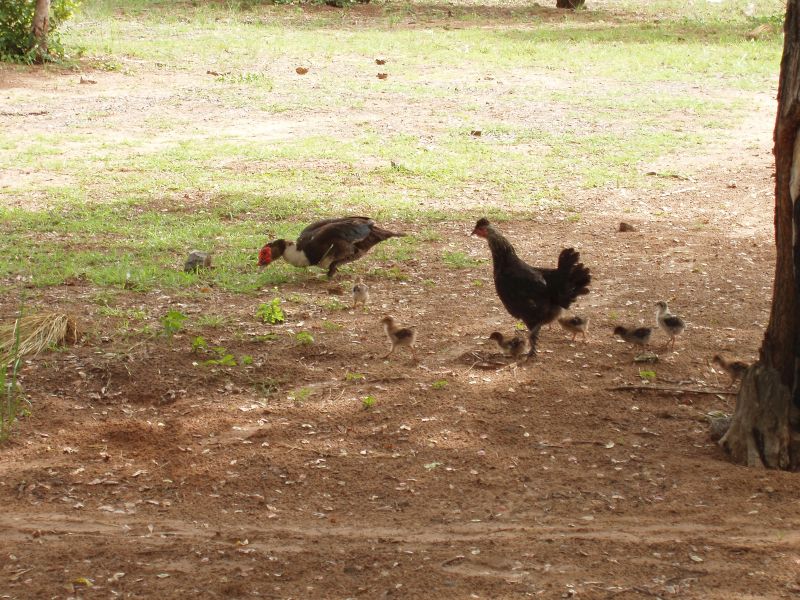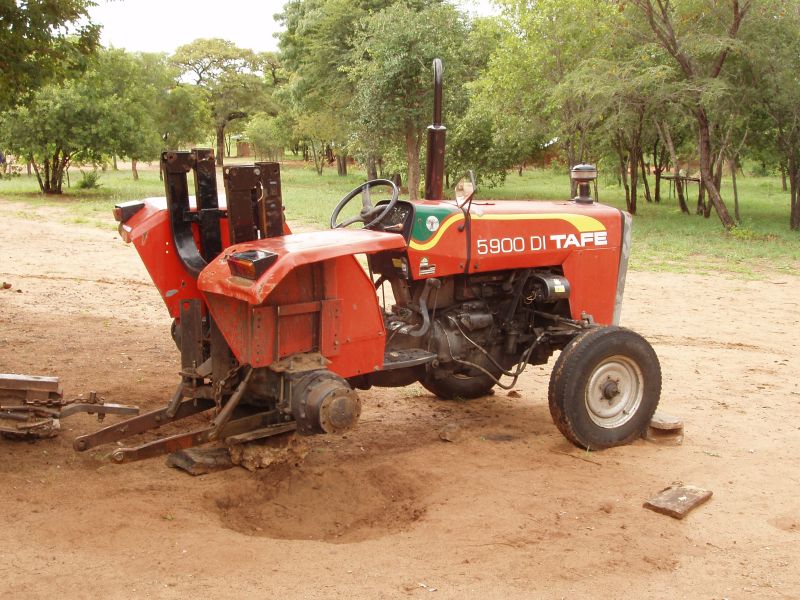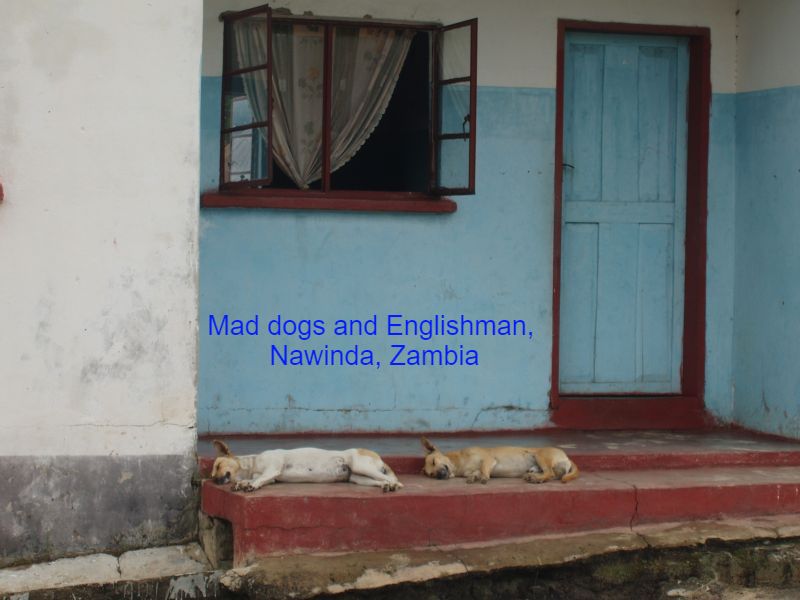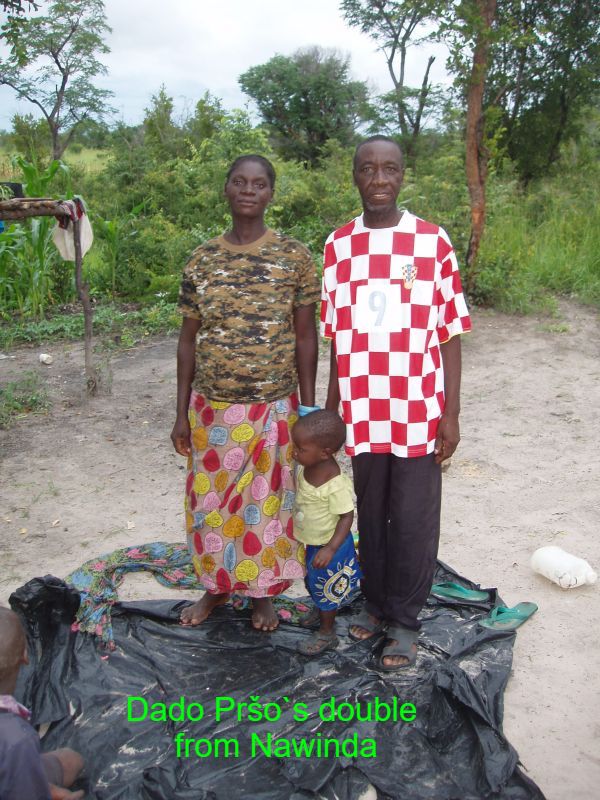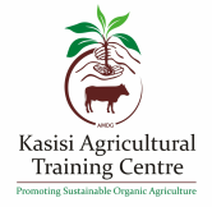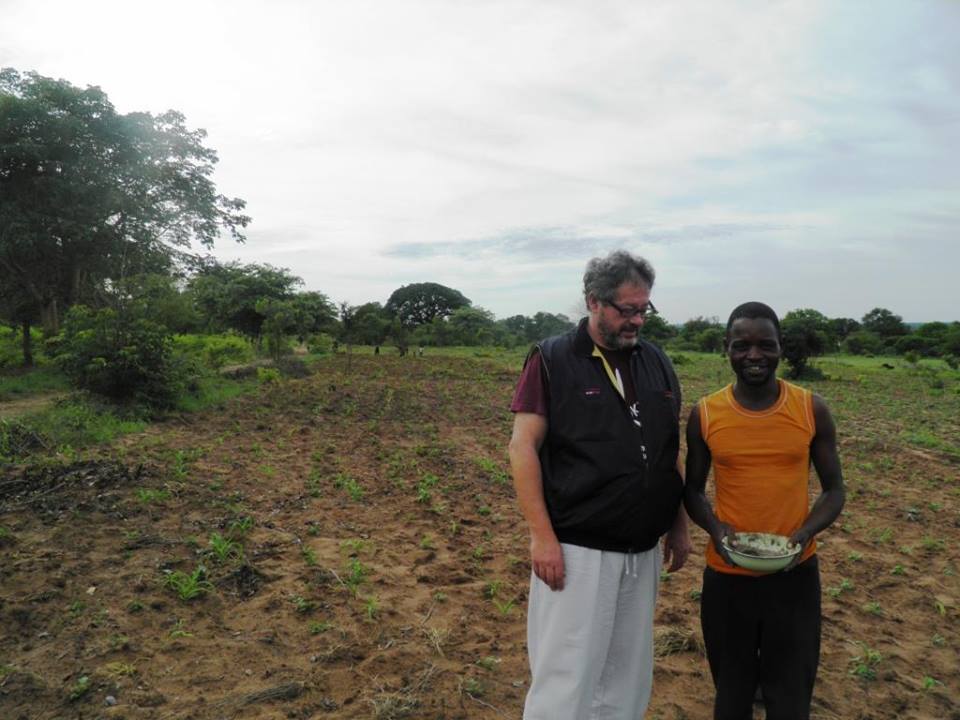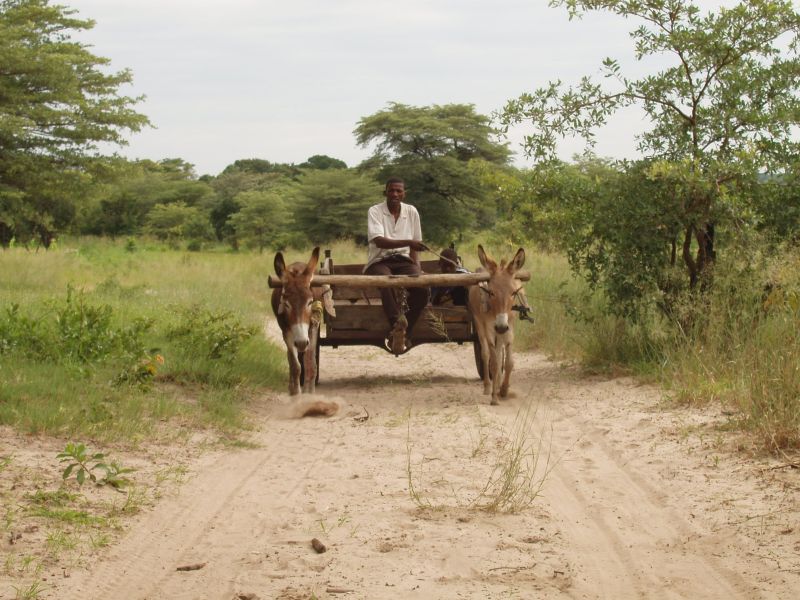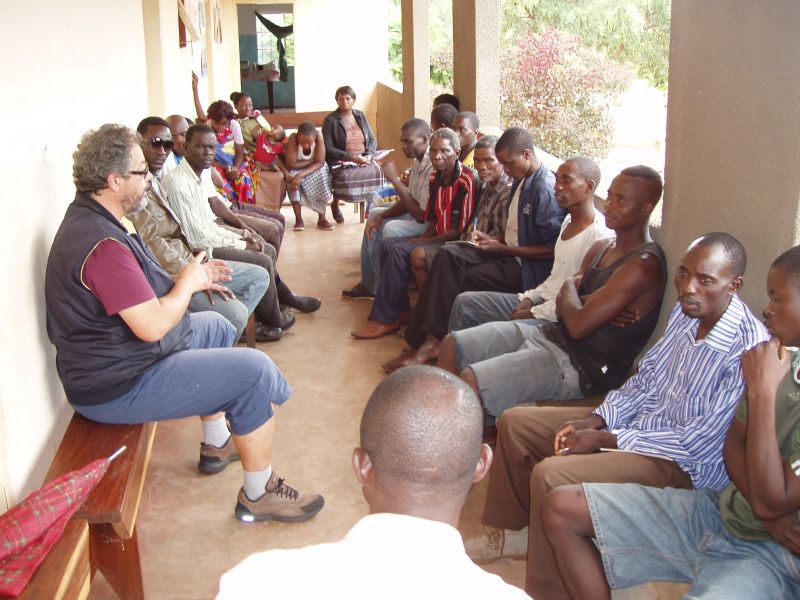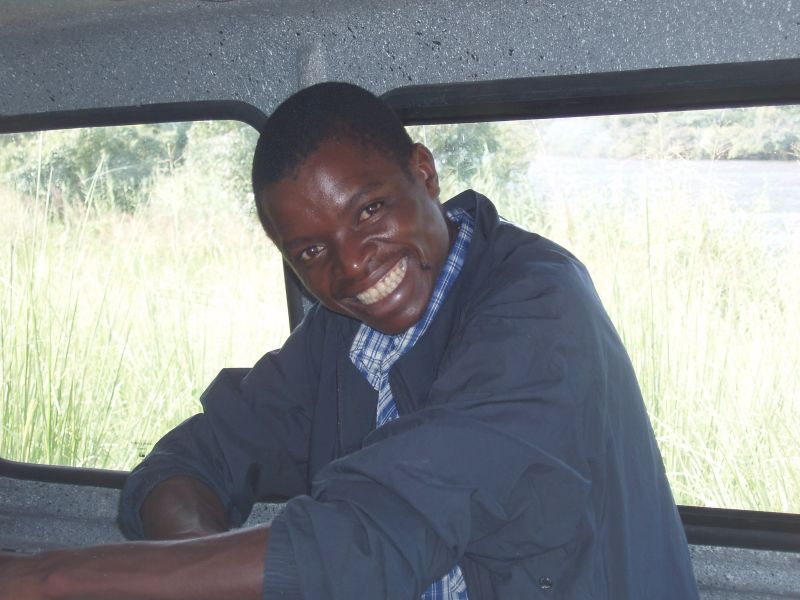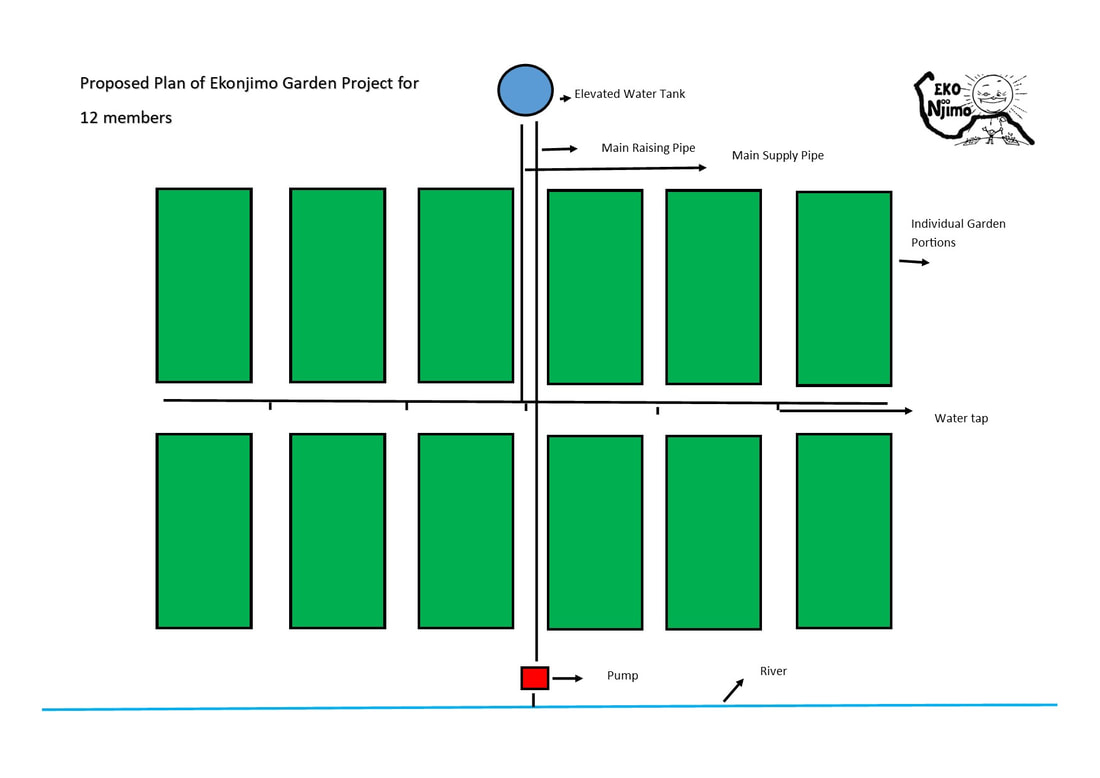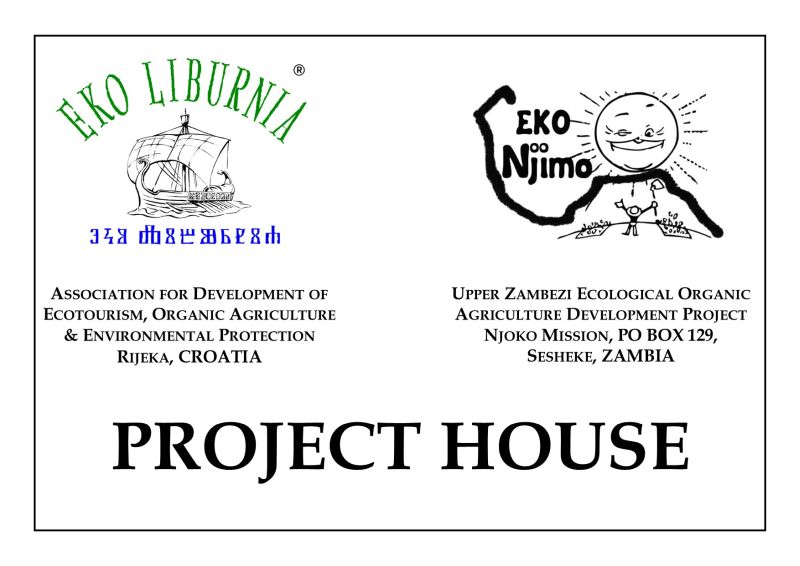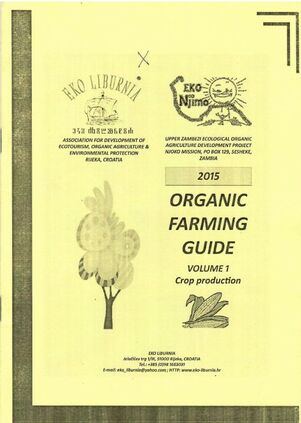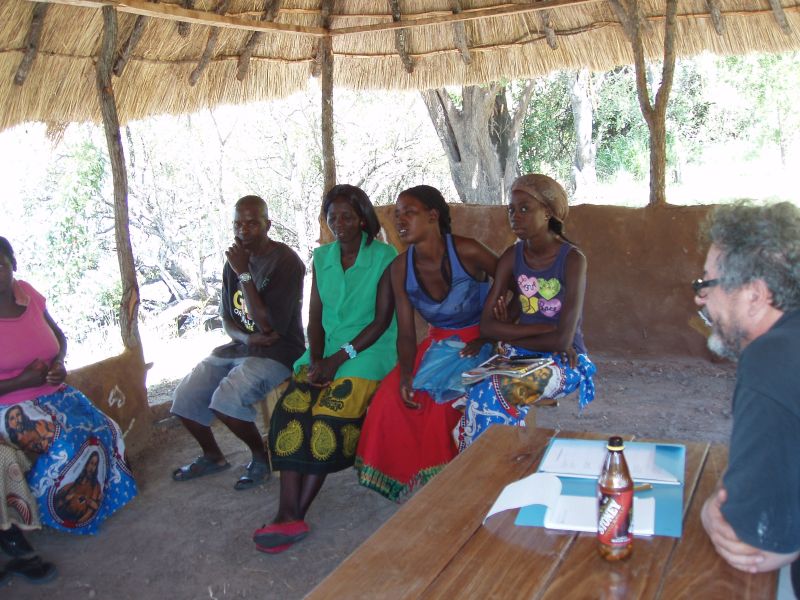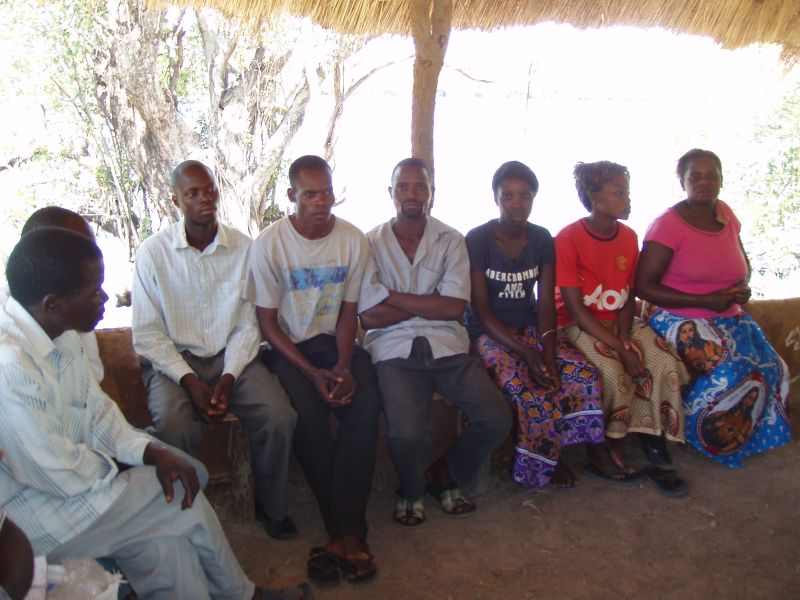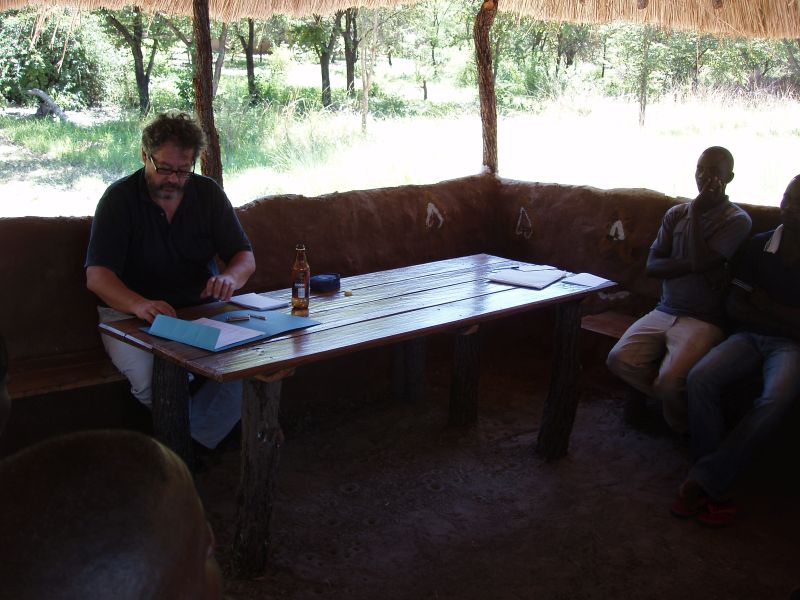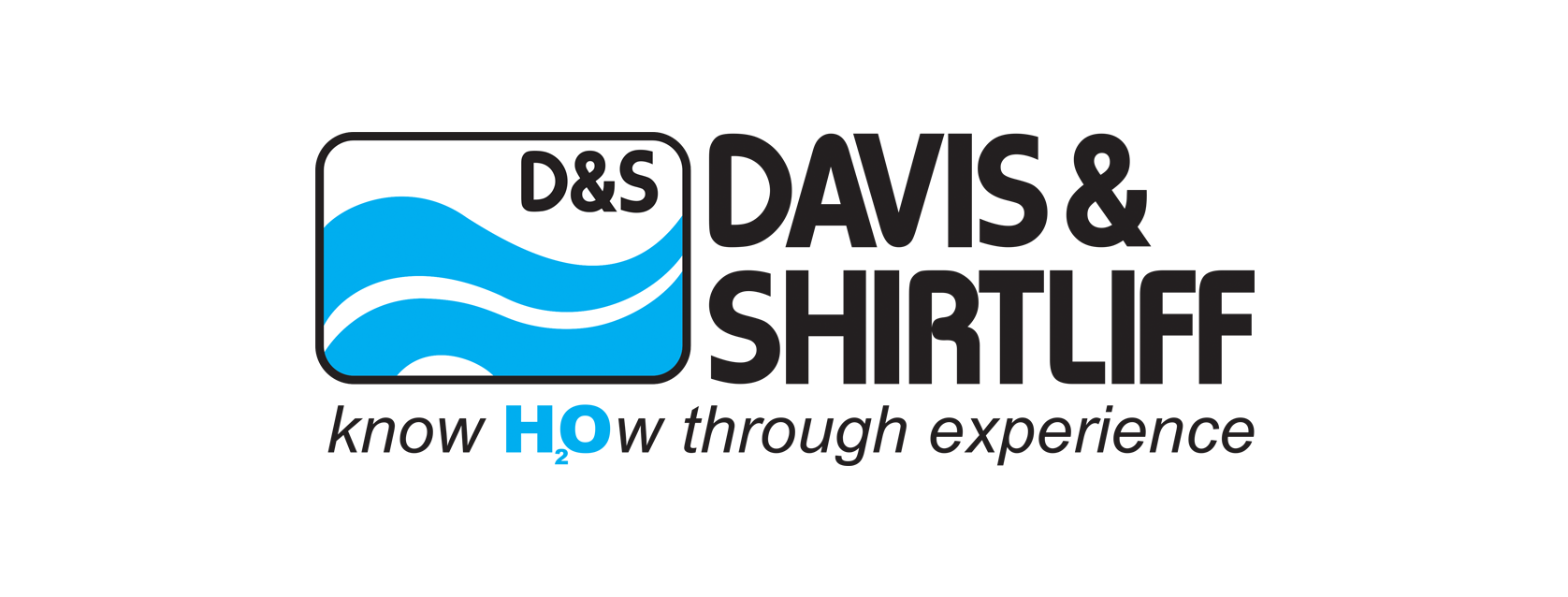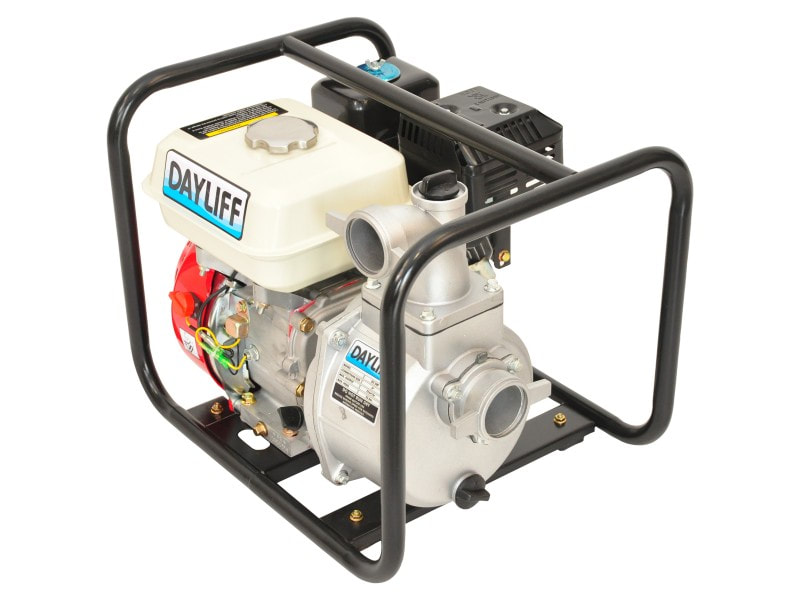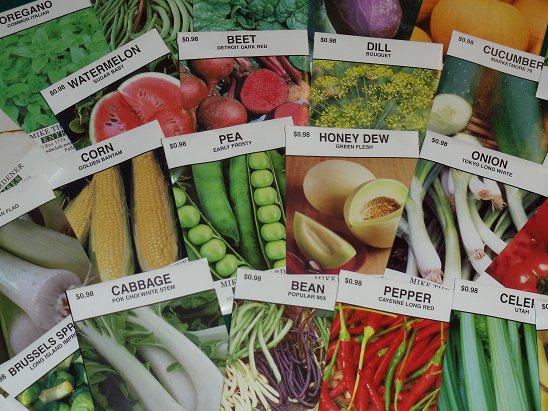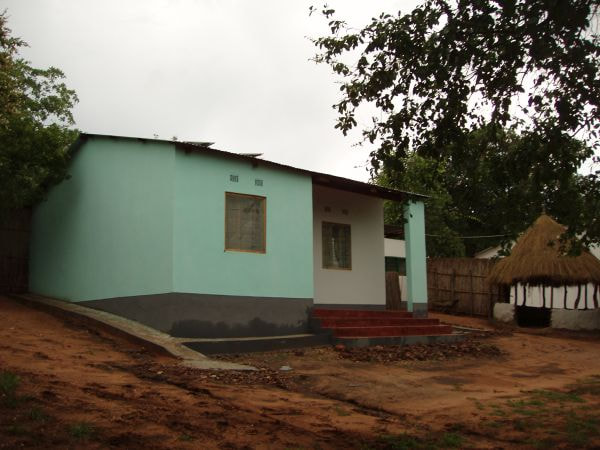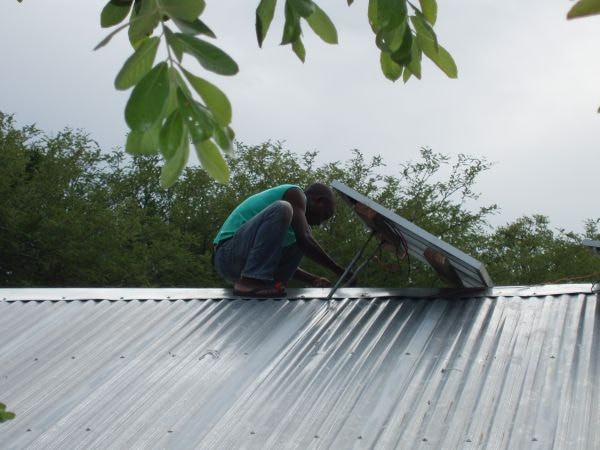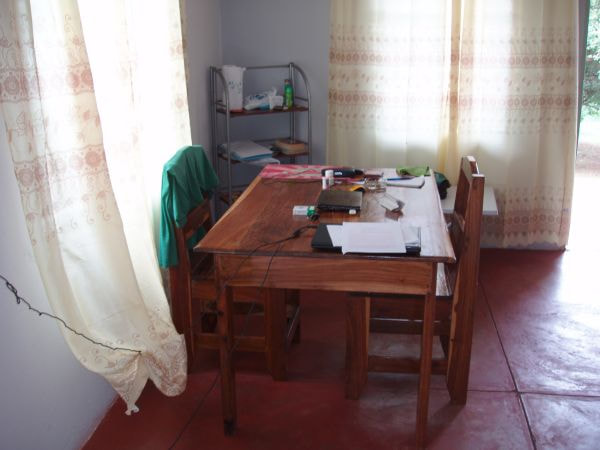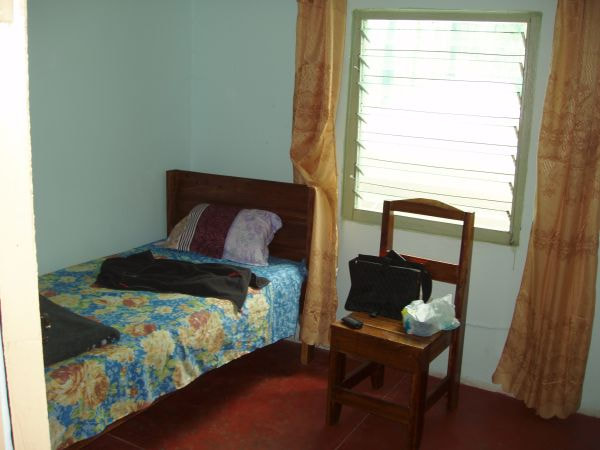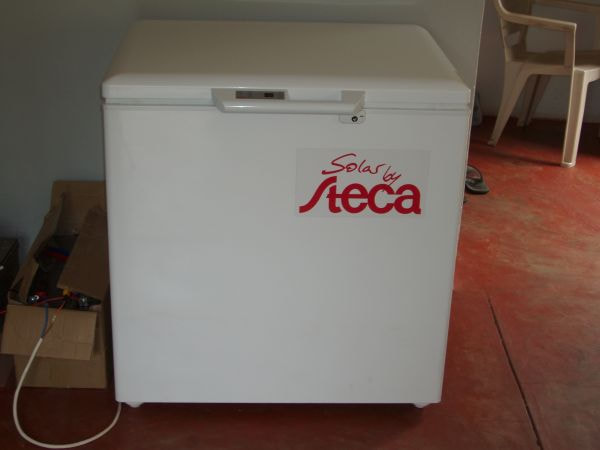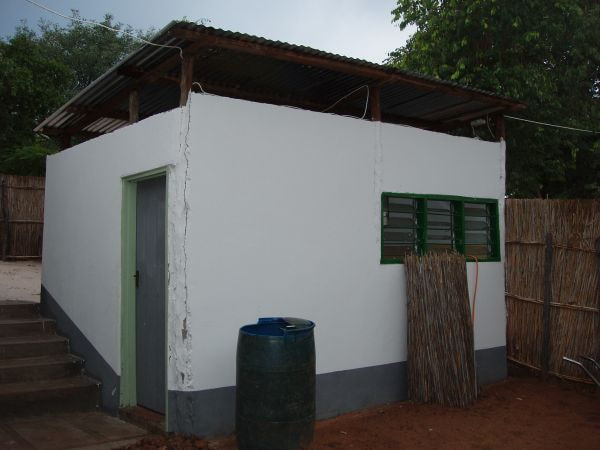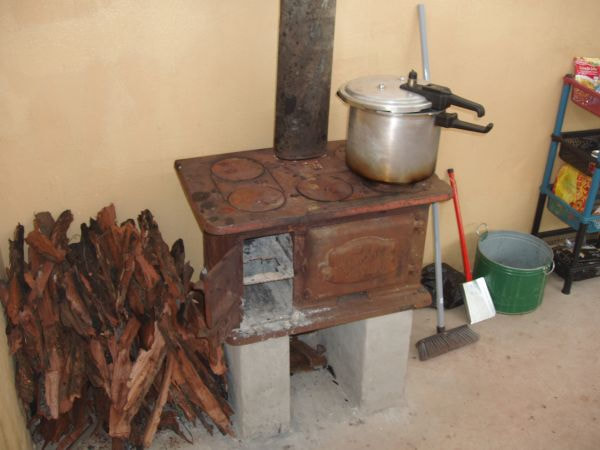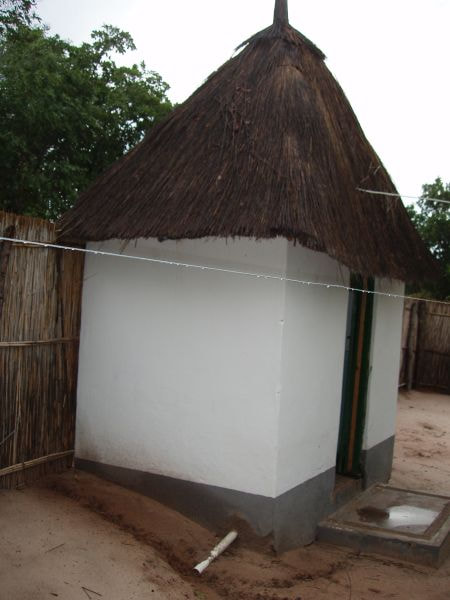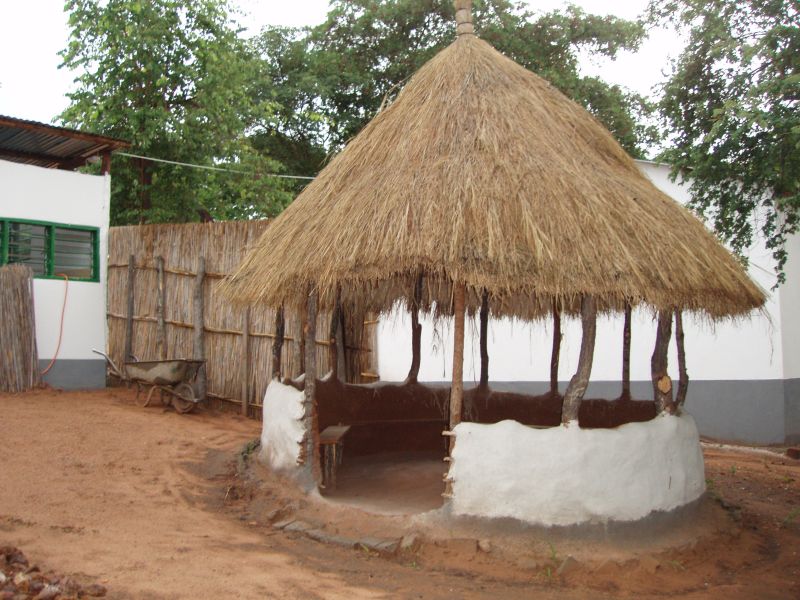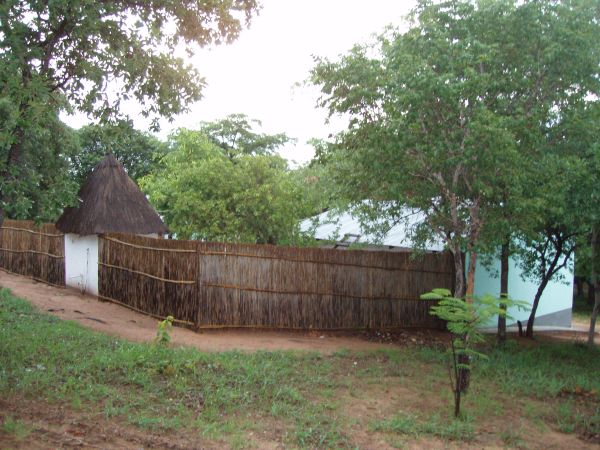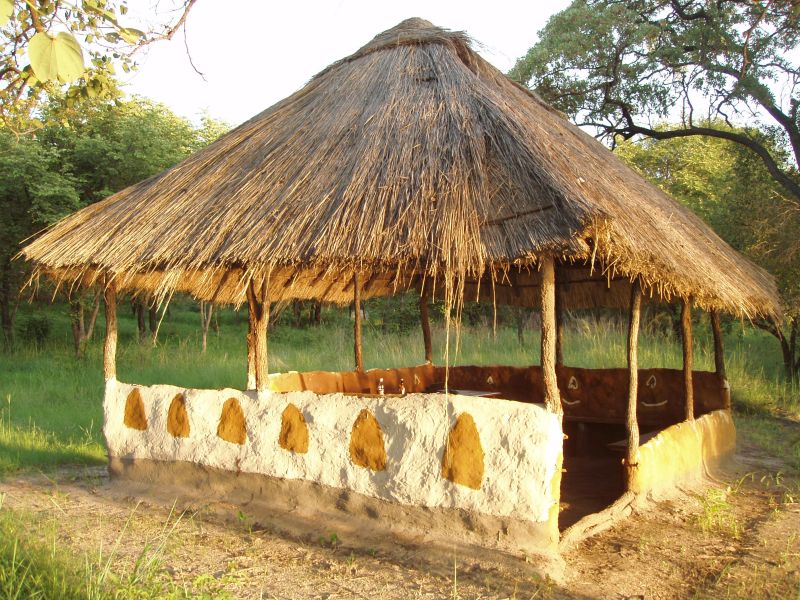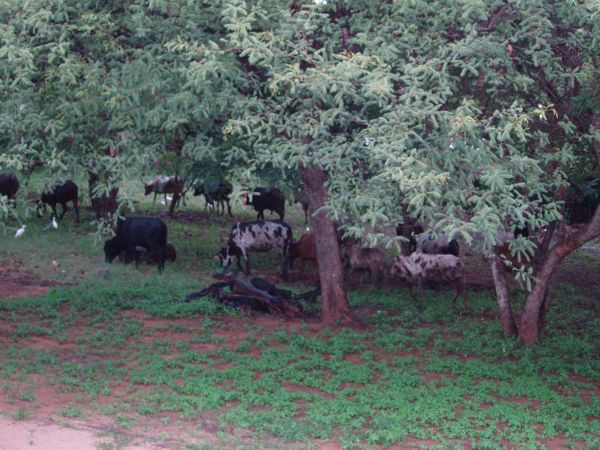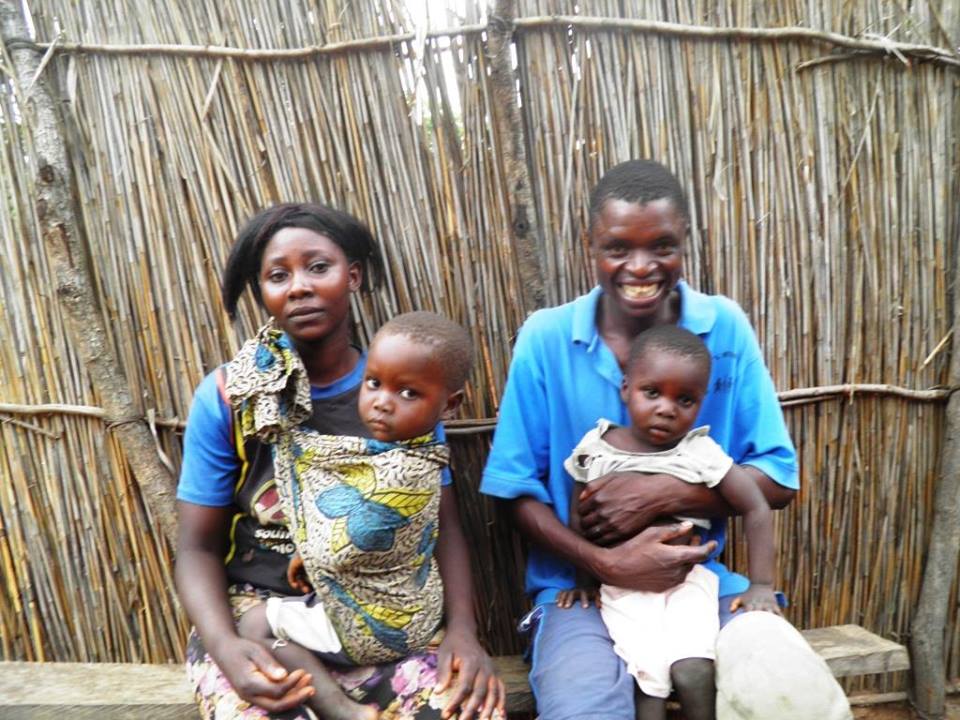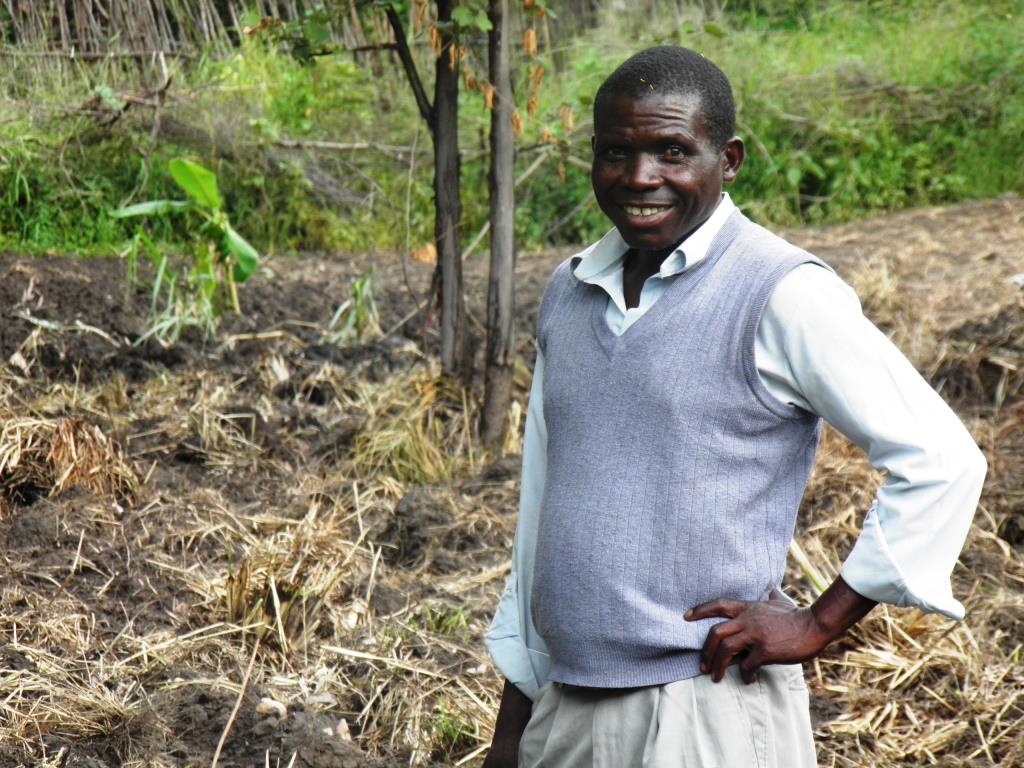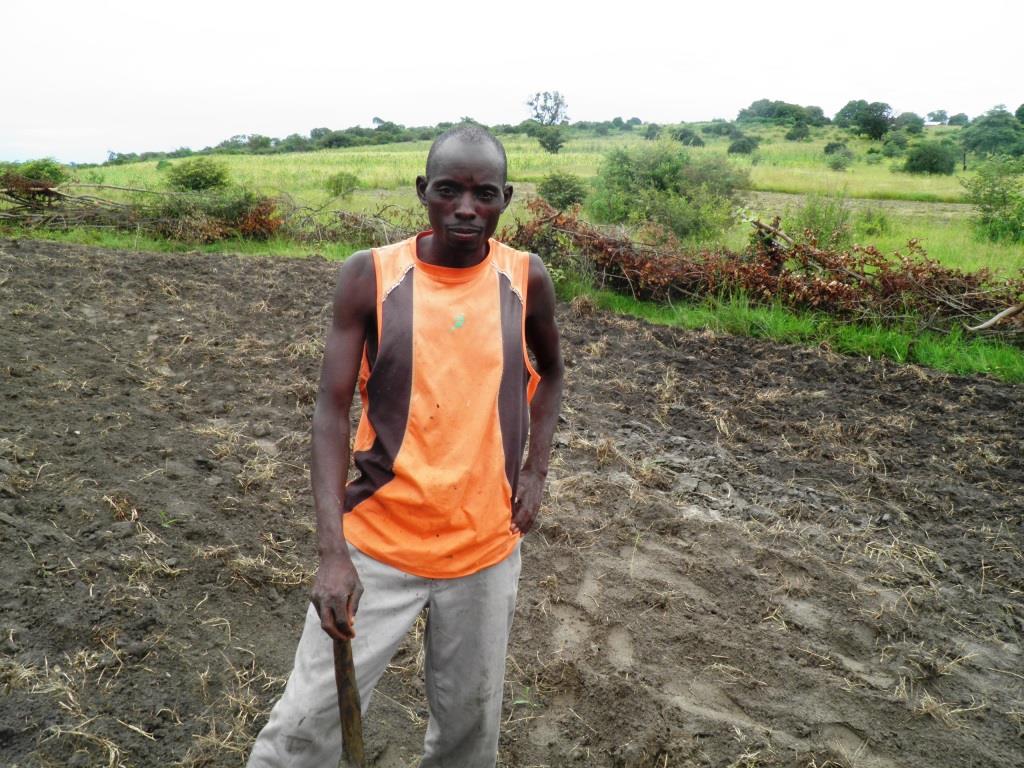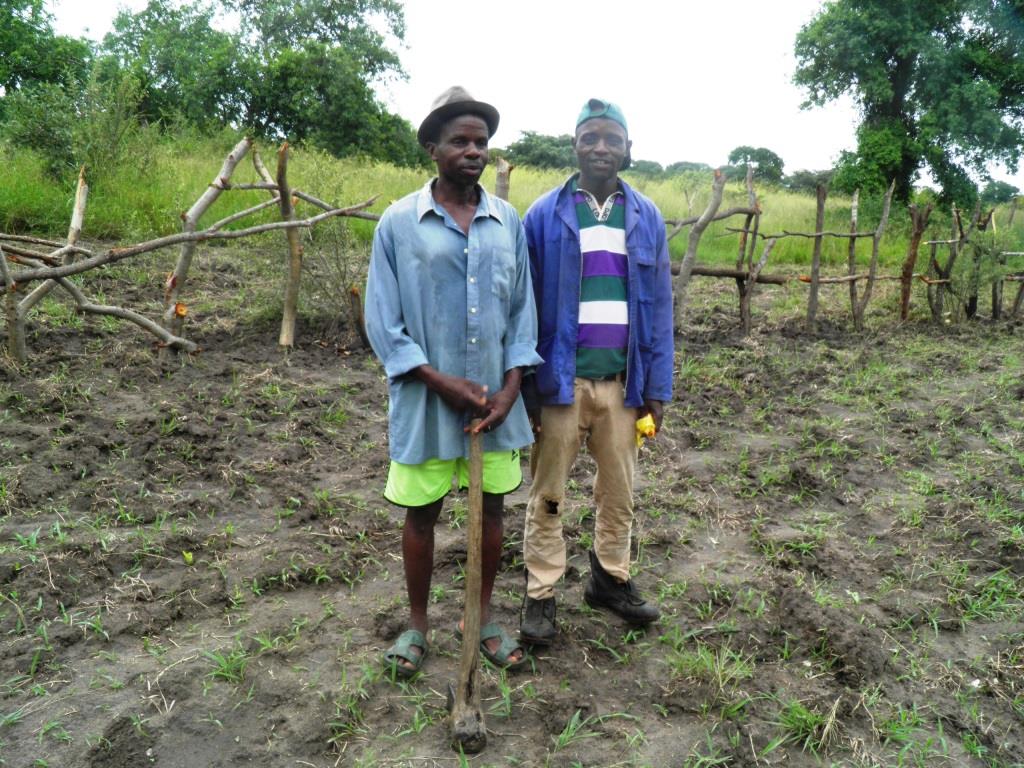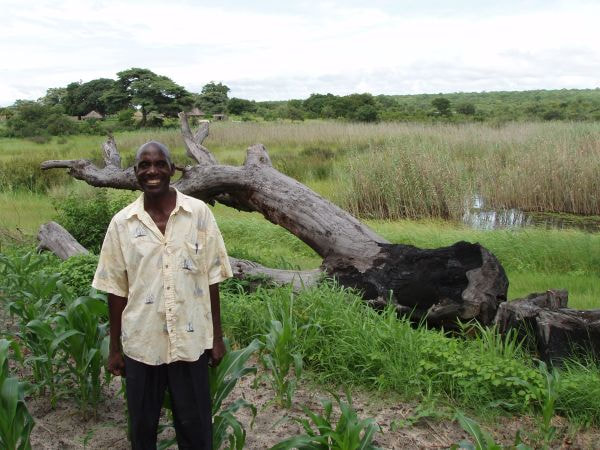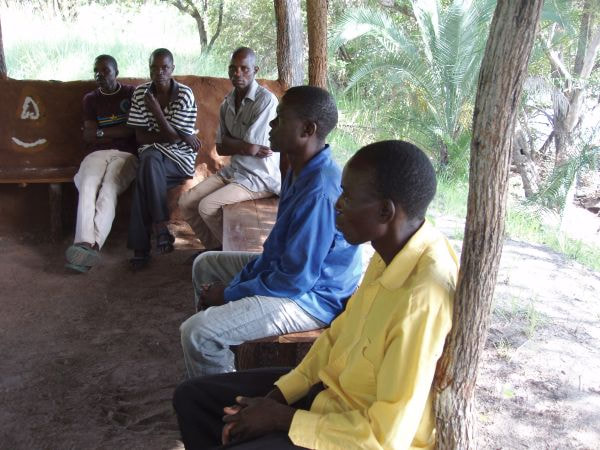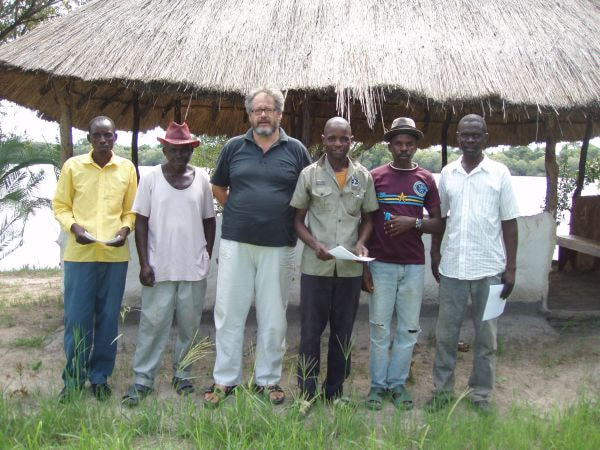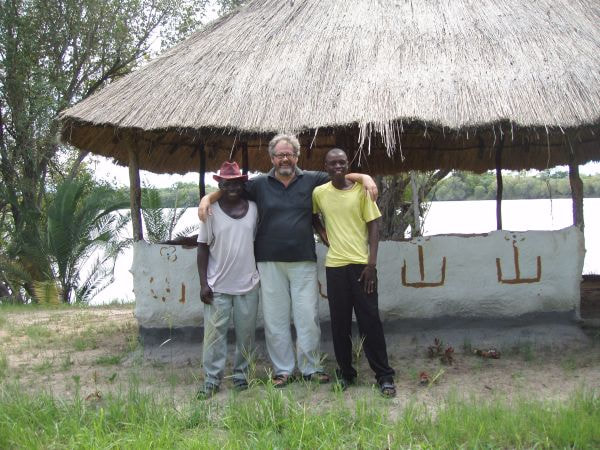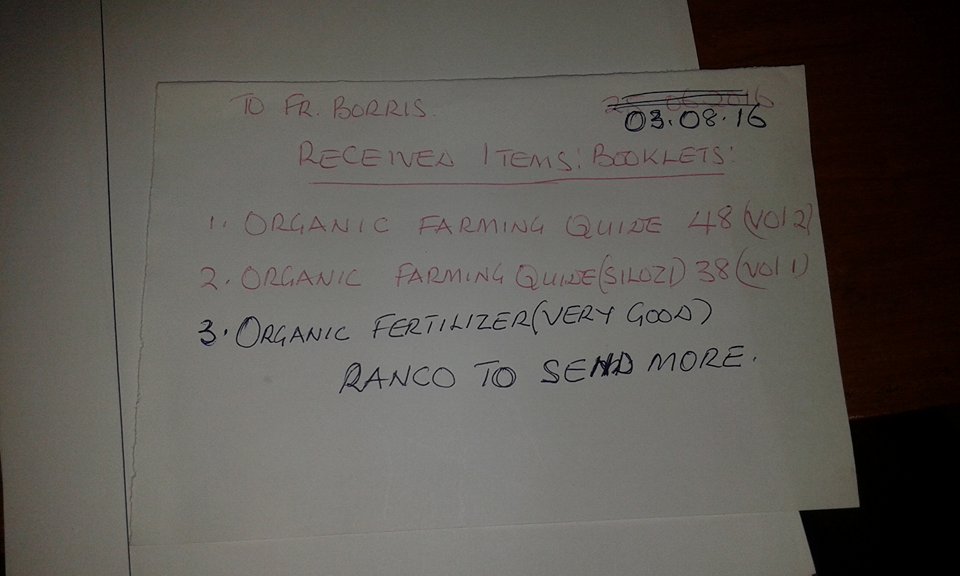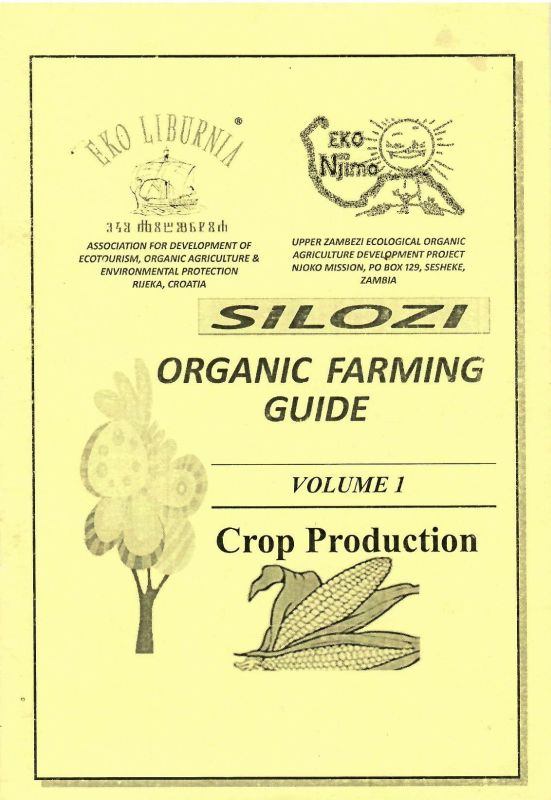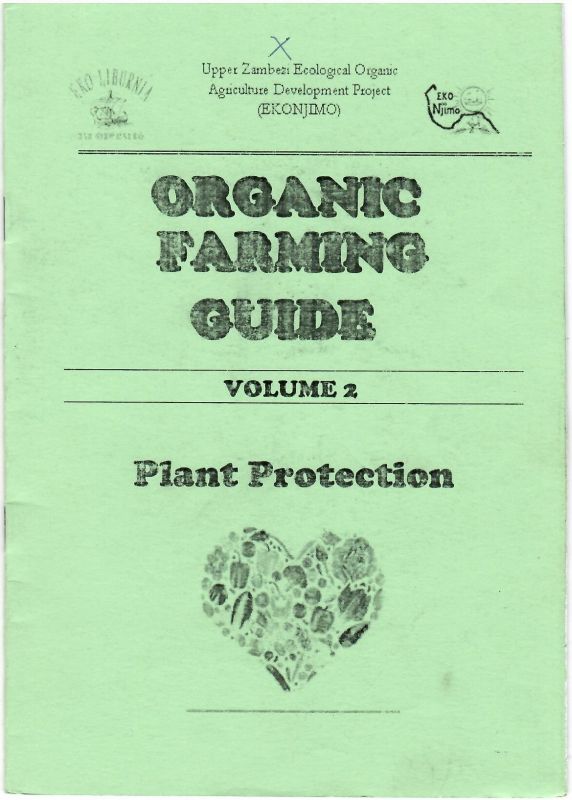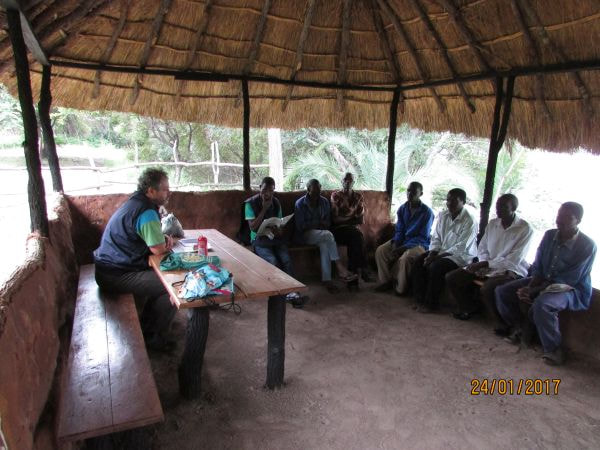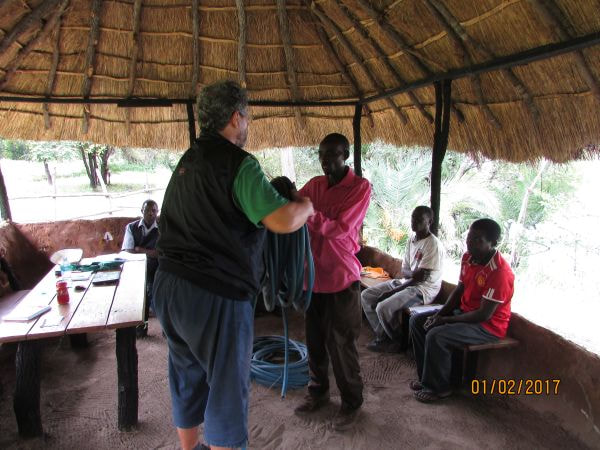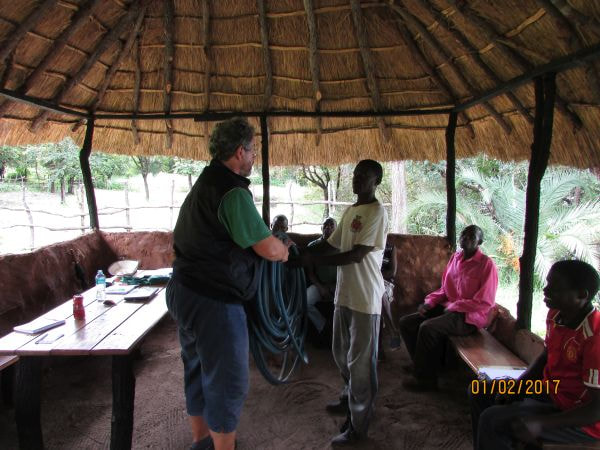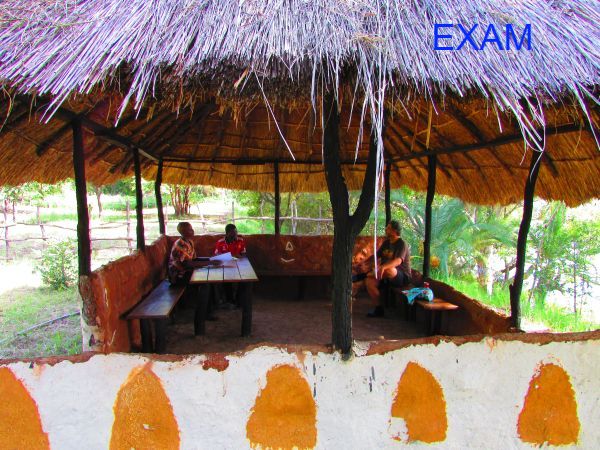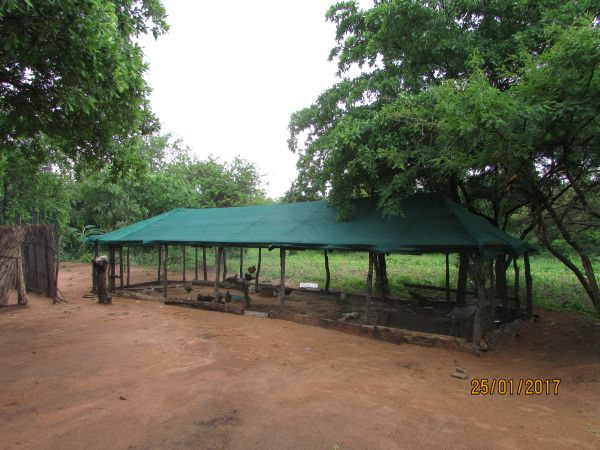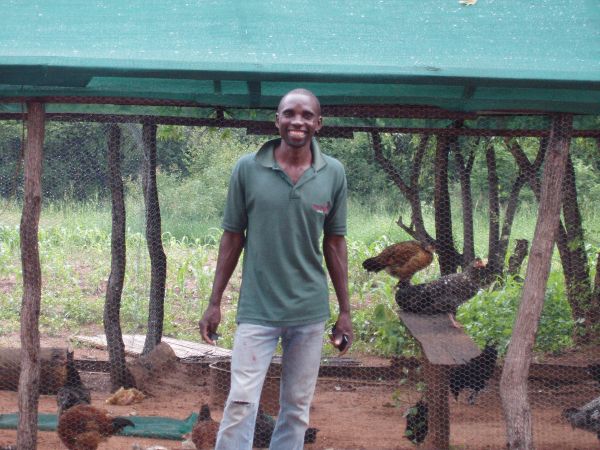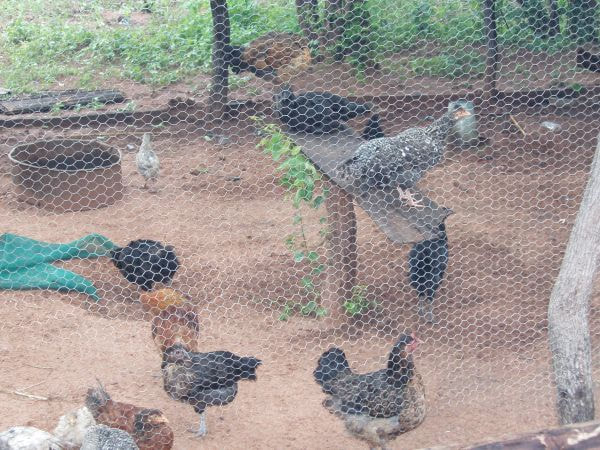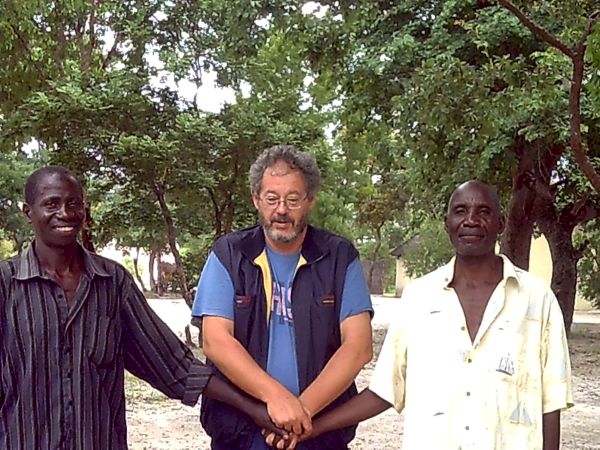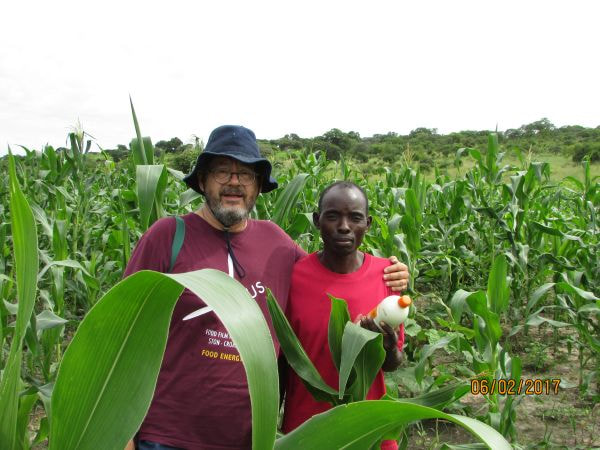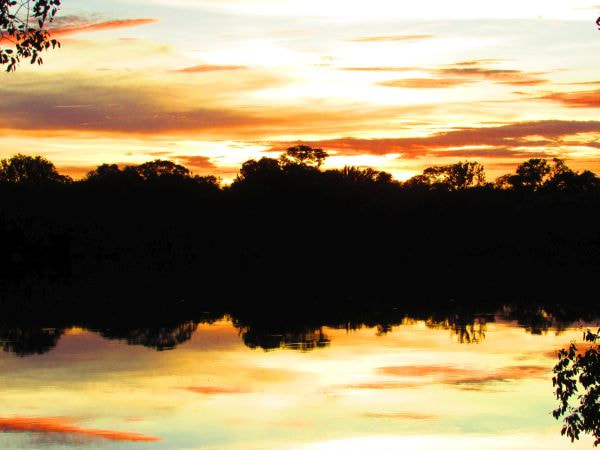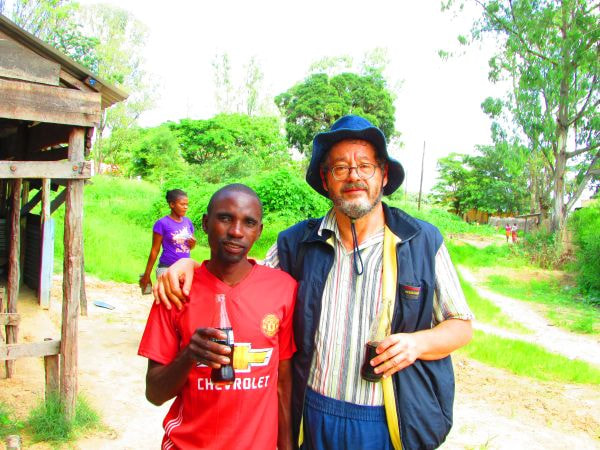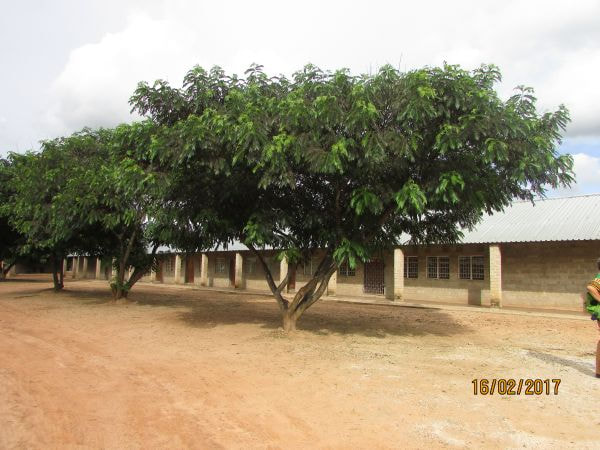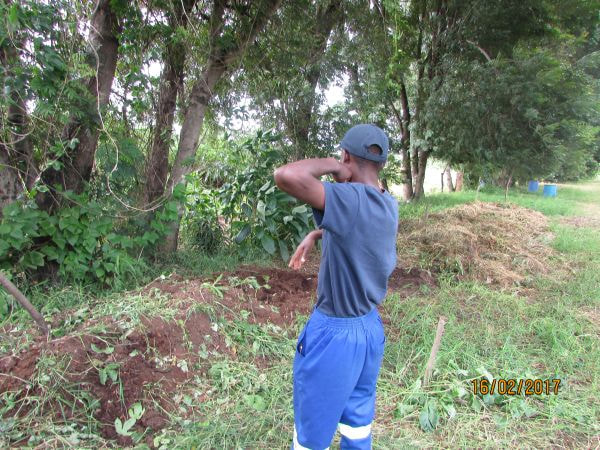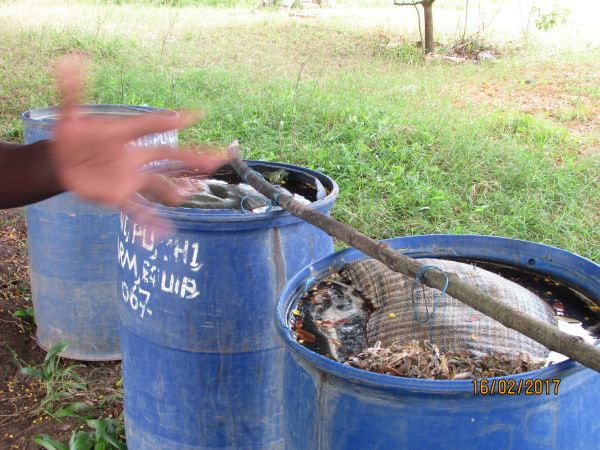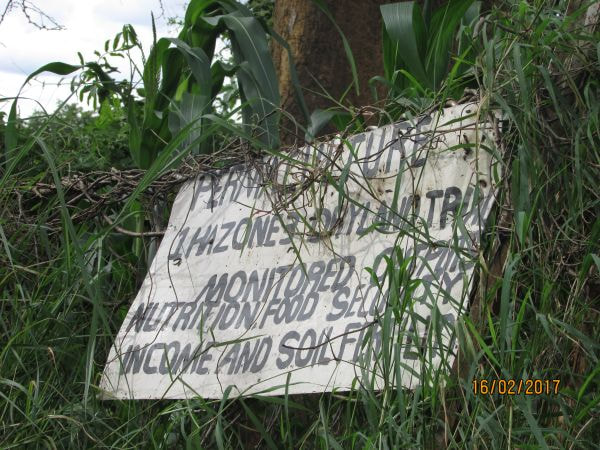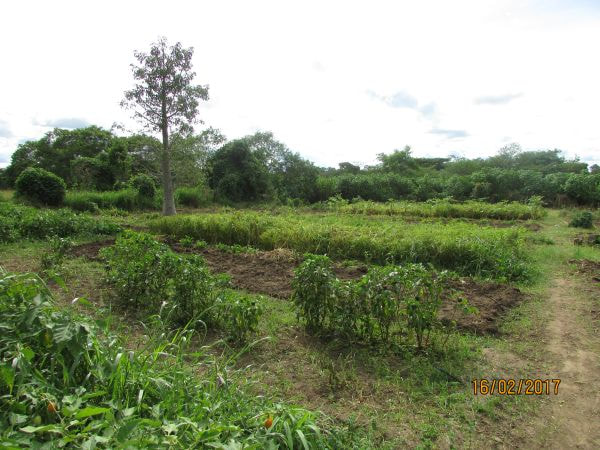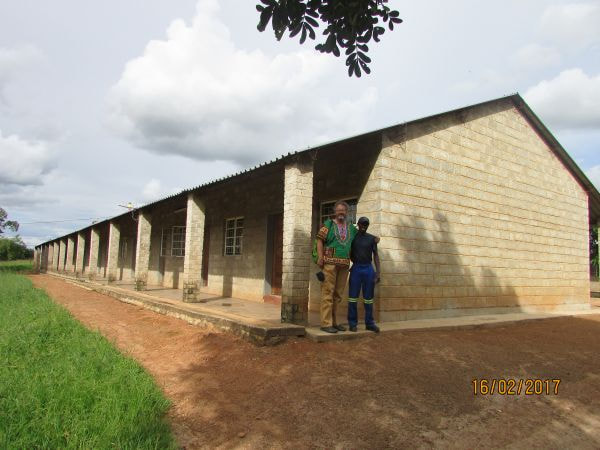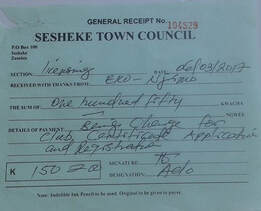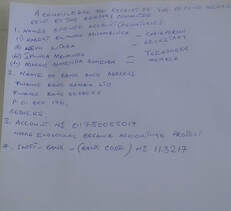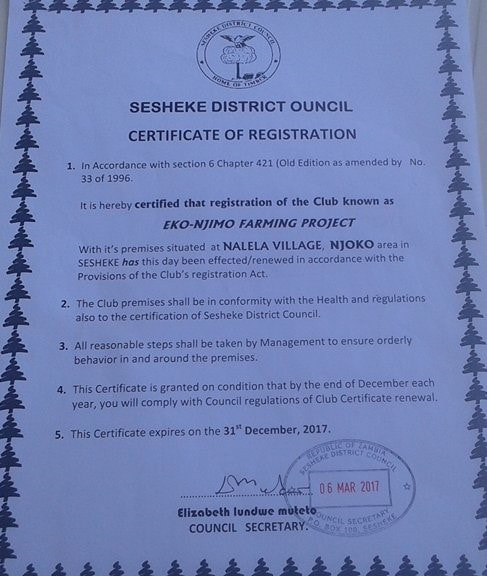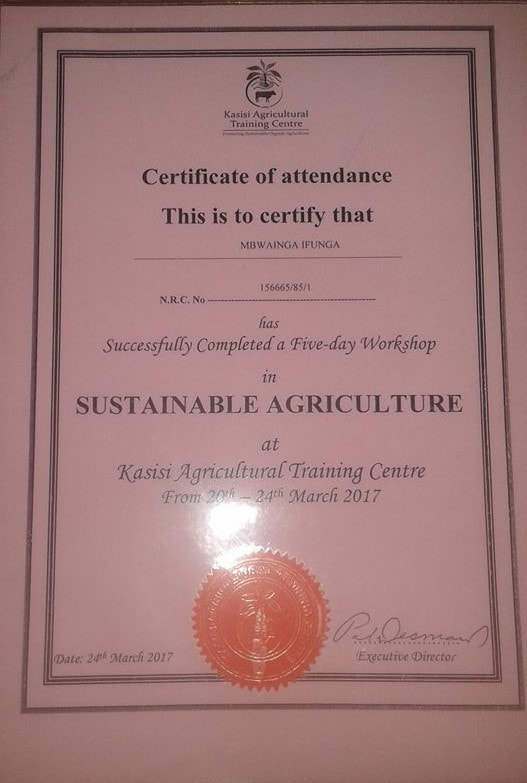EKONJIMO
|
EKONJIMO je projekt koji su članovi udruge Eko Liburnia
Naziv projekta je hrvatsko-zambijska (Silozi) kovanica dvije riječi: EKO (riječ koja u Siloziju ne postoji) i NJIMO (poljoprivreda na Siloziju). |
EKONJIMO is project which members of Eko Liburnia
Project title is Croatian-Zambian (Lozi) portmanteau of two words: EKO (word that does not exist in Silozi language) and NJIMO (agriculture in Silozi). |
|
U provedbi projekta financijski su nam pomogli:
|
Project implemetation was financially suported by:
|
1. Introduction
Zambia belongs to the group of the world´s most impoverished and vulnerable countries known as the least developed countries (LDCs) since 1991. These countries have been classified by the UN as "least developed" in terms of their low gross national income (GNI), their weak human assets and their high degree of economic vulnerability.
On the other hand Zambia is endowed with a large land resource base. Of the 752,000 square kilometers total land area about 43 million hectares (58%) is classified as medium to high potential for agricultural production of which only 1.5 million hectares (14%) is cultivated every year. The agricultural sector is one of the backbones of the Zambian economy. Primary agriculture contribute about 35 percent to the country’s total non traditional exports (all the country’s exports other than copper and cobalt) and about 10 percent of the total export earnings for the country. The sector also provides employment to 70 percent of the labour force (source: Zambia Agriculture Sector Profile, 2011 & Agriculture Sector Leaflet, 2014).
Furthermore, Zambia has abundant water resources for irrigation. The irrigable potential is conservatively estimated at 430,000 ha, of which no more than 100,000 ha is developed, mostly on commercial farms for sugar, wheat and plantation crops. Zambia has four lakes, four big rivers, many perennial rivers, dambos, dams and underground water sources.
In Africa there are slightly more than one million hectares of certified organic agricultural land (2011) which constitutes about 3% of the world’s organic agricultural land (source: FiBL-IFOAM survey 2013). There were 541,000 certified organic producers. Uganda is the country with the largest organic area (with more than 220,000 hectares) and with the largest number of organic producers. The country with the highest share of organic agricultural land is the island state Sao Tome and Principe with 8 percent of its agricultural area being organic. The majority of certified organic produce in Africa is destined for export markets. Key crops are coffee, olives, cocoa, oilseeds, and cotton.
There is a growing recognition among policy makers that organic agriculture has a significant role to play in addressing the pressing problems of food insecurity, poverty, and climate change in Africa. Currently, the Action Plan of the Ecological Organic Agriculture (EOA) Initiative has been implemented on a pilot basis in six countries: Kenya, Tanzania, Uganda, and Ethiopia in eastern Africa; Nigeria in western Africa; and Zambia in southern Africa.
Zambia belongs to the group of the world´s most impoverished and vulnerable countries known as the least developed countries (LDCs) since 1991. These countries have been classified by the UN as "least developed" in terms of their low gross national income (GNI), their weak human assets and their high degree of economic vulnerability.
On the other hand Zambia is endowed with a large land resource base. Of the 752,000 square kilometers total land area about 43 million hectares (58%) is classified as medium to high potential for agricultural production of which only 1.5 million hectares (14%) is cultivated every year. The agricultural sector is one of the backbones of the Zambian economy. Primary agriculture contribute about 35 percent to the country’s total non traditional exports (all the country’s exports other than copper and cobalt) and about 10 percent of the total export earnings for the country. The sector also provides employment to 70 percent of the labour force (source: Zambia Agriculture Sector Profile, 2011 & Agriculture Sector Leaflet, 2014).
Furthermore, Zambia has abundant water resources for irrigation. The irrigable potential is conservatively estimated at 430,000 ha, of which no more than 100,000 ha is developed, mostly on commercial farms for sugar, wheat and plantation crops. Zambia has four lakes, four big rivers, many perennial rivers, dambos, dams and underground water sources.
In Africa there are slightly more than one million hectares of certified organic agricultural land (2011) which constitutes about 3% of the world’s organic agricultural land (source: FiBL-IFOAM survey 2013). There were 541,000 certified organic producers. Uganda is the country with the largest organic area (with more than 220,000 hectares) and with the largest number of organic producers. The country with the highest share of organic agricultural land is the island state Sao Tome and Principe with 8 percent of its agricultural area being organic. The majority of certified organic produce in Africa is destined for export markets. Key crops are coffee, olives, cocoa, oilseeds, and cotton.
There is a growing recognition among policy makers that organic agriculture has a significant role to play in addressing the pressing problems of food insecurity, poverty, and climate change in Africa. Currently, the Action Plan of the Ecological Organic Agriculture (EOA) Initiative has been implemented on a pilot basis in six countries: Kenya, Tanzania, Uganda, and Ethiopia in eastern Africa; Nigeria in western Africa; and Zambia in southern Africa.
DEFINITION OF ECOLOGICAL AND ORGANIC AGRICULTURE (EOA)
Source: PELUM Kenya
- EOA is a holistic production management system that considers the agro-ecosystem in all its diversity
- It focuses on attaining a balanced food system designed to enhance biological diversity, promotes healthy use of soils, air and water; relying on renewable resource in locally organized agricultural systems
- EOA systems increase soil biological activity, maintain long-term fertility, apply sound relies on biodiversity, ecological processes & cycles to sustain the health of soils, ecosystems and people while minimizing the addition of external inputs like agrochemicals and inorganic fertilizers that may have adverse effects on these systems
- It combines modern science, innovative practices and tradition to promote good relationships of the various environmental elements
- Some of the farming practices in EOA includes organic farming, sustainable agriculture, biointensive agriculture, permaculture, ecological farming
Source: PELUM Kenya
At the Second African Organic Conference held in Lusaka, Zambia, in May 2012 “The Lusaka Declaration on Mainstreaming Organic Agriculture into the African Development Agenda” was adopted which is due to its importance. It will be used to continue lobbying a comprehensive range of stakeholders capable of unlocking the potential that organic/ecological agriculture offers for Africa.
| lusaka_declaration_on_mainstreaming_organic_agriculture.pdf | |
| File Size: | 283 kb |
| File Type: | |
However, the concept of sustainable development, as well as the principles and techniques of environmentally friendly economic activities (organic agriculture, use of renewable energy sources, ecotourism, etc) are still rather unknown within the majority of population of Zambia, country in which there are 10,055 organic small-scale producers producing on 7,310 hectares of certified organic agricultural land which constitutes 0.03 percent of its agricultural area (data from 2009).
|
2. EKONJIMO Project Background
Eko Liburnia has developed its own regional sustainable development concept and participated in many organic agriculture development projects in the last 18 years. Representatives of Eko Liburnia held meeting with the Reverend Father Boris Dabo, Croatian Catholic missionary to Zambia for more than 30 years in Rijeka, Croatia on 7th August 2014, Meeting came to the conclusion that Eko Liburnia and Njoko Mission, Zambia should commence with the joint ecological organic agriculture development project aimed at small-scale substitence farmers from Sesheke District in Western Province of Zambia (bordering Angola and Namibia, marked with an arrow on the map on the left). Conclusion of the meeting was that Ranko Tadić, president of Eko Liburnia, will make study visit to proposed Project region in January 2015 after which final project proposal will be produced. |
It is predominantly inhabited by the Lozi people which are, historically, one of the most prominent peoples of Zambia. The Lozi people, or Barotse, are a language group of more than 46 different ethnic groups primarily of western Zambia, inhabiting the region of Barotseland. The Lozi people number approximately 3,575,000. Apart from Zambia Lozi are also found in Namibia (Caprivi Strip), Angola, Botswana, Mozambique and Zimbabwe. The Lozi are also known as the Malozi, Nyambe, Makololo, Barotose, Rotse, Rozi, Rutse, or Tozvi. The Lozi speak Silozi, a Sotho-Tswana language.
According to available data and findings of the Ranko Tadić, Project coordinator, study visit to Njoko Mission and Nawinda areas in Sesheke District in January-February 2015, the most important arable crops within the Project region are: maize (corn), millet, sorghum, cassava, beans, peanuts (groundnuts) and different kind of vegetables.
Within the Project region there are two farming seasons: first minor one starts with planting during the cool dry season (May-August) and finishing with harvest of maize in December. In this farming season only early maize (locally known as Lisanjo maize) and vegetables (solely in small gardens on the banks of Zambezi river (locally called Nuka) and its tributaries are cultivated. Main farming season starts with planting at the end of the hot dry season (September-November) and lasting throughout the whole rainy season (December-April) with harvest in May. This period is also known as the „hungry“ period of the year as food crops from the previous harvesting season are already gone.
According to available data and findings of the Ranko Tadić, Project coordinator, study visit to Njoko Mission and Nawinda areas in Sesheke District in January-February 2015, the most important arable crops within the Project region are: maize (corn), millet, sorghum, cassava, beans, peanuts (groundnuts) and different kind of vegetables.
Within the Project region there are two farming seasons: first minor one starts with planting during the cool dry season (May-August) and finishing with harvest of maize in December. In this farming season only early maize (locally known as Lisanjo maize) and vegetables (solely in small gardens on the banks of Zambezi river (locally called Nuka) and its tributaries are cultivated. Main farming season starts with planting at the end of the hot dry season (September-November) and lasting throughout the whole rainy season (December-April) with harvest in May. This period is also known as the „hungry“ period of the year as food crops from the previous harvesting season are already gone.
Another problem of maize and other crops’ production in Project region is the fact that sandy soils are predominant, so even when it rains, the water drains through immediately. Increasing soil organic matter is the key to farming and gardening in sandy soil. You have to make the soil more “sticky”, so water and nutrients do not just flush through every time it rains. You do this by making the soil more hospitable to bacteria. Bacteria will provide the glue to bind sandy soil into something much better.
In Project region vegetables are produced in small gardens on rivers’ banks since there are no irrigation systems so gardeners water their crops manually using buckets. Maize and other arable crops are produced on parcels close to the villages without any irrigation. Good practice is that on these small farms people are often using existing trees to provide shade for the agricultural crops. Farming on parcels distant from human settlements is mostly avoided due to the huge crop loss caused by monkeys, other bush animals and birds.
In Project region vegetables are produced in small gardens on rivers’ banks since there are no irrigation systems so gardeners water their crops manually using buckets. Maize and other arable crops are produced on parcels close to the villages without any irrigation. Good practice is that on these small farms people are often using existing trees to provide shade for the agricultural crops. Farming on parcels distant from human settlements is mostly avoided due to the huge crop loss caused by monkeys, other bush animals and birds.
The only exception of this rule is rice which is planted distantly from villages on parcels which are covered by water most of the year. Rice is not produced on a large scale since these soils are too heavy for ox or donkey ploughing. Using of presently non-existing tractors could increase Project region’s rice production tremendously.
In Project region there are many fruit trees in and around villages. The most numerous fruit tree is muhuluhulu, as it is called in Silozi, or the white star apple. The generic name Chrysophyllum albidum is based on Greek words for ‘gold’ and ‘leaf’ and refers to the leaves of some species that are often covered with golden hairs underneath. Muhuluhulu is a dominant canopy tree of lowland mixed rain forest, sometimes riverine. Fruits are almost spherical, slightly pointed at the tip, about 3.2 cm in diameter, greenish-grey when immature, turning orange-red, yellow-brown or yellow, sometimes with speckles, 5 celled, with 5 brown seeds in yellowish, pleasantly acid pulp. The fleshy and juicy fruits, picked when ripe in September/October, are popularly eaten. They are also the potential source of a soft drink or, as it is the case within the Project region, fruits can be fermented and distilled for the production of wine and spirits.
In Project region there are many fruit trees in and around villages. The most numerous fruit tree is muhuluhulu, as it is called in Silozi, or the white star apple. The generic name Chrysophyllum albidum is based on Greek words for ‘gold’ and ‘leaf’ and refers to the leaves of some species that are often covered with golden hairs underneath. Muhuluhulu is a dominant canopy tree of lowland mixed rain forest, sometimes riverine. Fruits are almost spherical, slightly pointed at the tip, about 3.2 cm in diameter, greenish-grey when immature, turning orange-red, yellow-brown or yellow, sometimes with speckles, 5 celled, with 5 brown seeds in yellowish, pleasantly acid pulp. The fleshy and juicy fruits, picked when ripe in September/October, are popularly eaten. They are also the potential source of a soft drink or, as it is the case within the Project region, fruits can be fermented and distilled for the production of wine and spirits.
Other local fruit trees are mombole in Silozi (Parinari curatellifolia) which fruits are smaller in size than muhuluhulu (ripe in November/December) and mohaman with peanut-sized fruit, popularly eaten with milk (ripe from September-November). Father Boris Dabo, Project advisor, has planted many well-known fruit trees in Njoko Mission proving that this is an excellent area for growing of guava, lemon (third photo on the right above), pawpaw (papaya), mango and avocado. During the Project coordinator’s study visit the new experiment with growing pineapples just started. The only problem is that monkeys often eat almost all fruit harvest.
From livestock almost every house is keeping oxes as working animals, while some are growing cows for milk production. A dowry or bride’s price in Zambia is called "lobola". This is a pre-wedding practice where the groom is asked to pay an appreciation fee to his intended wife’s family for raising her well. This fee is usually paid in cattle in rural areas such as the Project region.
From livestock almost every house is keeping oxes as working animals, while some are growing cows for milk production. A dowry or bride’s price in Zambia is called "lobola". This is a pre-wedding practice where the groom is asked to pay an appreciation fee to his intended wife’s family for raising her well. This fee is usually paid in cattle in rural areas such as the Project region.
Donkeys are also widely kept as working animals, and every house is having free-range chicken.
Besides production problems transport is another big problem for local farmers because regular public transport does not exist and local bush roads are usually in a very poor condition. One needs good 4- wheel-drive vehicle to pass 60 kms from Njoko Mission to district capital Sesheke. Another possibility is crossing Zambezi river with the tiny boat to the other bank and continue journey with the taxi. In this case always exists the possibility to encounter hippos or crocodiles which may not be too happy about it.
Njoko Mission have bought tractor with trailer for transport of passengers and goods to and from Sesheke but during the study visit in 2015 tractor was out of order as a result of the bad road conditions).
Situation is even worse in second Project site Nawinda where on a top of transport problems infrastructure for mobile phones and internet still does not exist. The only “window to outside world” for 10,000 people, including school with 550 pupils, is the radio-station in a local clinic. Forget about social media.
Situation is even worse in second Project site Nawinda where on a top of transport problems infrastructure for mobile phones and internet still does not exist. The only “window to outside world” for 10,000 people, including school with 550 pupils, is the radio-station in a local clinic. Forget about social media.
Finally, like the 80 percent of Zambians, population of the Project region does not have access to electricity. The only sources of electricity are small solar cells, used mostly for charging of smart phones for music reproduction. Access to running water also does not exist and water must be collected from rivers in the old-fashioned way.
Therefore, any serious agricultural medium and large-scale project at this moment is economically almost not possible within the Project region so all Project activities have to be done on a small-scale only.
3. EKONJIMO Project Goal and Objectives
Principal goal of EKONJIMO Project was to create concept of the sustainable rural development, as stated in “The Lusaka Declaration on Mainstreaming Organic Agriculture into the African Development Agenda”, and to create awareness within selected Project region population, which should result in achieveing local food safety and security and reduction of poverty and hunger once this Project is successfully terminated.
Principal goal of EKONJIMO Project was to create concept of the sustainable rural development, as stated in “The Lusaka Declaration on Mainstreaming Organic Agriculture into the African Development Agenda”, and to create awareness within selected Project region population, which should result in achieveing local food safety and security and reduction of poverty and hunger once this Project is successfully terminated.
Objectives of the preliminary and the first initial phase of EKONJIMO project (13 months from December 2014 – December 2015) were the following:
- to promote and put in practice principles and techniques of ecological organic agriculture and food production in accordance with the internationally accepted IFOAM standards;
- to identify potential ecological organic small-scale substitence farmers within the Project region and to train them both theoretically and practically in appropriate techniques of ecological organic agriculture; and
- to establish minimum of three ecological organic agriculture farmers’ groups (EOAFGs) in settlements around Njoko Mission which will be practically assisted by the Project during its initial phase.
Objectives of the possible second phase of EKONJIMO project (14 months from January 2016 – February 2017) were the following:
- to identify more potential ecological organic farmers within the broader Project region and to train them both theoretically and practically in appropriate techniques of ecological organic agriculture;
- to establish some new ecological organic agriculture farmers’ groups (EOAFGs) in the broader Project region (settlements in area of 90 kms between Njoko Mission and Nawinda) which will be practically assisted by the Project during its second phase;
- to establish Upper Zambezi Ecological Organic Farmers’ Association (UZEOFA) from elected representatives of Project formed EOAFGs as the non-profit making organisation under the provisions of the Societies Act Cap 119 of the Laws of Zambia; and
- to commence with the establishment of the Upper Zambezi Ecological Organic Training Center (UZEOTC) in or close to Njoko Mission similar to Kasisi Agricultural Training Centre (KATC) close to Lusaka. UZEOTC will serve as headquarters of the UZEOFA, providing different kind of services: field experiments on existing crops and new introduced crops suitable for sandy soils such as moringa, rye, potatoes, raspberries and asparagus; training and advisory for Project region’s EOAFGs, local extension workers and future organic agriculture inspectors; potential organic food small-scale processing using solar power; securing internationally recognized certification of locally produced ecological organic food products through Croatian organic control body AgriBioCert, member of Eko Liburnia; and marketing assistance for Zambian and foreign markets.
|
Kasisi Agricultural Training Centre (KATC) is one of the Social Apostolates of the Society of Jesus (Jesuits) in the Zambia-Malawi Province. KATC which was established in 1974, is a farmer-training centre situated 30 km North - East of Lusaka, 10km from the Kenneth Kaunda International airport.
KATC’s overall goal is to contribute to the creation of a gradually improving rural structure with a view of fostering an improvement in productivity, food security, income and rural livelihoods while conserving the environment. https://www.katczm.org/ |
4. EKONJIMO Project Implementation
4.1. Preliminary Phase (December 2014- February 2015)
Project activities started in December 2014 with three-months preliminary phase during which following activites are performed:
4.1. Preliminary Phase (December 2014- February 2015)
Project activities started in December 2014 with three-months preliminary phase during which following activites are performed:
- soil samples from Njoko Mission were collected and mailed end of 2014 to South Africa for laboratory testing
- study visit of Ranko Tadić, Project coordinator, to Njoko Mission and Nawinda areas was performed from 13th January – 6th February 2015 during which time he prepared EKONJIMO Concept Paper
- initial meetings of Project partners with local farmers took place in Njoko Mission on 17th January 2015 and in Nawinda on 24th January 2015;
Visit to local farmer (left above), Typical local rural transport (right above),
Public meeting 02.02.2015. (left below), John Sitali, EKONJIMO secretary (right below)
Public meeting 02.02.2015. (left below), John Sitali, EKONJIMO secretary (right below)
- Project partners held official public meeting with Project region farmers being the potential beneficiaries of the Project on 2nd February 2015.
- Project partners selected John Sitali from Njoko Mission as the Project secretary for the first initial phase. From 1st March 2015 – 28th February 2016 Project secretary was paid by Eko Liburnia through Njoko Mission.
- Njoko Mission provided office and utilites for Project secretary work, while Eko Liburnia provided laptop computer and covered for annual internet costs.
4.2. First Initial Phase (March - December 2015)
After preliminary phase activities on establishment of three EOAFGs was carried out by the Project secretary with the assistance of Father Boris Dabo, the Project advisor.
It was envisaged that each EOAFG should consist of minimum of six to maximum of twelve farmers with similar production for future sound operating efficency. For such a group of farmers proposed EKONJIMO garden plot with irrigation was developed by the Project advisor (see below).
After preliminary phase activities on establishment of three EOAFGs was carried out by the Project secretary with the assistance of Father Boris Dabo, the Project advisor.
It was envisaged that each EOAFG should consist of minimum of six to maximum of twelve farmers with similar production for future sound operating efficency. For such a group of farmers proposed EKONJIMO garden plot with irrigation was developed by the Project advisor (see below).
It was planned that each EOAFG must elect its chairman and collect membersheep fees in amount of 3.00 ZMK/month (36.00 ZMK/year) from every member. Membership fees of all EOAFGs will be collected from EOAFGs chairmen and kept by the Project secretary for Project activities.
In February-March 2015 three EOAFGs were established, as follows:
In February-March 2015 three EOAFGs were established, as follows:
- TUKONGOTE MAIZE GROWING PROJECT with 12 members situated in Tukongote Village on 19th February 2015
- LU SWALISANE – ZAMBEZI FARMERS GROUP with 10 members situated in Likukela Village, near the old football ground right at the Zambezi River on 22nd February 2015
- NCHELE GROUP OF FARMERS with 12 members close to the point where Njoko river joins Zambezi on 22nd March 2015
|
|
| ||||||||||||||||||
Once EOAFGs were established activity on collection of statistical data on existing production of their members should have started. For that purpose Project coordinator prepared the Project questionnaire in English which was to be translated into Silozi by the Project secretary, who was also responsible for collecting and filling-in of data. Filled-in questionnaires in both Silozi and English had to be kept in Project’s laptop. All filled-in questionnaires in English Project secretary was to be send by e-mail to Eko Liburnia in Croatia which never happened.
Project secretary was also responsible to establish contacts with potential Project partners from Zambia being:
In March 2015 results of laboratory testing of soil samples from Njoko Mission came from South Africa (attached).
Project secretary was also responsible to establish contacts with potential Project partners from Zambia being:
- Organic Producers and Processors Association of Zambia (OPPAZ), Lusaka (see: http://www.fao.org/3/y1669e/y1669e0n.htm); and
- Kasisi Agricultural Training Centre, run by the Society of Jesus, Lusaka.
In March 2015 results of laboratory testing of soil samples from Njoko Mission came from South Africa (attached).
| ekonjimo_soil_analysis_s-africa_2015.pdf | |
| File Size: | 80 kb |
| File Type: | |
After establishment of three EOAFGs Father Boris Dabo officially contacted Catholic Diocese of Livingstone by letter on 8th April 2015 asking for their opinion and permission of the EKONJIMO Project activities within the Njoko Mission.
His Excellency, The Most Reverend Raymond Mpezele, Bishop of Livingstone replied in person with very warm and encouraging letter on 16th April 2015. Bishop`s letter is attached below:
His Excellency, The Most Reverend Raymond Mpezele, Bishop of Livingstone replied in person with very warm and encouraging letter on 16th April 2015. Bishop`s letter is attached below:
Your browser does not support viewing this document. Click here to download the document.
After Catholic Diocese of Livingstone approved the project, EKONJIMO got its official Zambian adress, i.e. the Project house within the Njoko mission.
|
In Croatia Project coordinator prepared the List of Crops suitable to be grown in Sesheke District in Western Province of Zambia in English.
Moreover, Virna Klarić, Project assistant, prepared the first EKONJIMO Organic Farming Guide on Crop Production in English aimed for Zambian small-scale farmers. Both publications are available for free download at this web pages under header Publications. Publications were sent by e-mail to Zambia. First Project Organic Farming Guide was to be translated into Silozi by the Project secretary, printed and distributed to all members of EOAFGs. During preliminary phase in Zambia it was agreed that possible assistance could be the following: |
- provision of certified organic vegetables’ seeds for gardeners before end of the cool dry season in August 2015 (seeds were to be purchased and mailed from Croatia by Eko Liburnia and distributed to the members of three EOAFGs by the Project secretary);
- provision of the gasoline motor pump, pipes and tank to be used for irrigation of the selected garden(s). Equipment was to be purchased locally in Zambia by the Project advisor; and
- provision of the Croatian soil conditioner Agrovit/Ecovit (available on South African market) suitable for ecological organic agriculture to members of the EOAFGs latest before the main farming season starting in December 2015 (details of purchase and transport of the soil conditioner to the Project region were still to be decided).
Cost of the above mentioned assistance to EOAFGs in 2015 was to be beared by Eko Liburnia up to the total amount of 30,000 Zambian kwachas - ZMK (app. 27,000 Croatian kunas - HRK), not counting cost of travel and other study visit to Zambia costs of Project coordinator.
First initial phase of EKONJIMO project finished with the first Project evaluation in January 2016 when Project coordinator visited Project region for the second time from 1st -31th January 2016.
First initial phase of EKONJIMO project finished with the first Project evaluation in January 2016 when Project coordinator visited Project region for the second time from 1st -31th January 2016.
4.3. First Project Evaluation (January 2016)
First EKONJIMO evaluation consisted of several activities:
First EKONJIMO evaluation consisted of several activities:
- review of Project activities during first initial phase from March-December 2015 after meeting with Project benefiaries on 5th January 2016
- call for applications and selection of EKONJIMO project beneficiaries around Njoko Mission and in Nawinda
- putting the EKONJIMO Project house in function
- printing of the first Organic Farming Guide on Crop Production in Livingstone and arrangement for its translation into Silozi
- resettlement of the Project secretary to Lwampungu
- selection and engagement of the Project demonstrator in Njoko Mission including provision of the diesel motor pump, pipes and tools for Project demonstration garden in Njoko Mission
- final meetings with selected beneficiaries and signing of the first three contracts for gasoline motor pumps and pipes for irrigation around Njoko Mission from 27th-29th January 2016
4.3.1. Review of Project activities during first initial phase
Upon arrival to Zambia Project coordinator held the general meeting with the Project beneficiaries being representatives of the three established farmers` groups (EOAFGs) on 5th January 2016.
Upon arrival to Zambia Project coordinator held the general meeting with the Project beneficiaries being representatives of the three established farmers` groups (EOAFGs) on 5th January 2016.
During meeting villagers stated that they are not too happy with the work of three established EOAFGs and they asked that three sets of irrigation equipment purchased by Eko Liburnia for the Project should be given to selected individuals instead to groups of farmers. Project advisor also supported their proposal. For that matter it was jointly decided that call for individual applications for the equipment should be opened for three weeks and all interested participants should apply in a written form to the Project.
In 2015 Eko Liburnia spent total of ZMK 52,414.oo for the EKONJIMO Project activities in Zambia (excluding travel and accomodation costs of Project coordinator), as follows:
In 2015 Eko Liburnia spent total of ZMK 52,414.oo for the EKONJIMO Project activities in Zambia (excluding travel and accomodation costs of Project coordinator), as follows:
Type of cost |
Value (ZMK) |
Njoko Mission Project house equipping (solar module including batteries, inverter, charge controller and cord cable; STECA solar fridge including ancillary equipment, cable and accessories; solar light and water fixtures) |
25,936.00 |
Project secretary salary and office costs (laptop and annual internet costs) |
9,155.00 |
Purchases for farmers` groups (3 DC 50P water pumps including ancillary equipment and polypipes and vegetables`seeds) |
17,323.00 |
TOTAL COSTS 2015 |
52,414.00 |
4.3.2. EKONJIMO Project house in function
During first Project evaluation in January 2016 Project coordinator was staying and working in the EKONJIMO project house which was completely furnished and equipped, including purchase of additional solar module for solar fridge operation.
During first Project evaluation in January 2016 Project coordinator was staying and working in the EKONJIMO project house which was completely furnished and equipped, including purchase of additional solar module for solar fridge operation.
During the same time first Organic Farming Guide on Crop Production in English was printed in Livingstone and distributed among Project beneficiaries free of charge. In Nawinda Project coordinator arranged its translation into Silozi.
Most important was that during first evaluation Project partners jointly decided that Project should continue into its second phase from February 2016 – January 2017.
For that matter Project advisor proposed that instead of secretary Project should have two demonstrators, one placed in Njoko mission and another one in Lwampungu, village between Njoko Mission and Nawinda. John Sitali (ex-secretary) was to be resettled to Lwampungu, and Charles Samwaka Simalulu, selected candidate to be employed as demonstrator in Njoko Mission.
Proposal was accepted and It was agreed that Eko Liburnia in 2016 should pay salaries for both demonstrators and cover costs of their resettlements and costs of necessary tools for starting two demonstration project gardens. Demonstration garden in Njoko Mission would also be equipped with one diesel motor pump and pipes for irrigation.
Work of two demonstrators would be evaluated during second Project evaluation begining of 2017.
For that matter Project advisor proposed that instead of secretary Project should have two demonstrators, one placed in Njoko mission and another one in Lwampungu, village between Njoko Mission and Nawinda. John Sitali (ex-secretary) was to be resettled to Lwampungu, and Charles Samwaka Simalulu, selected candidate to be employed as demonstrator in Njoko Mission.
Proposal was accepted and It was agreed that Eko Liburnia in 2016 should pay salaries for both demonstrators and cover costs of their resettlements and costs of necessary tools for starting two demonstration project gardens. Demonstration garden in Njoko Mission would also be equipped with one diesel motor pump and pipes for irrigation.
Work of two demonstrators would be evaluated during second Project evaluation begining of 2017.
(1) John Sitali, new demonstrator in Lwampungu with his family; and (2) Charles Samwaka Simalulu, new demonstrator in Njoko Mission
4.3.3. Selection of Project beneficiaries for second phase of the Project
Final meetings, including theoretical training on ecological organic agriculture, with selected beneficiaries from and around Njoko Mission was held from 27th-28th January 2016.
Among 22 candidates from and around Njoko Mission four farmers were selected by Project coordinator and advisor:
1. Mr. Robert Ilyanga Mwambinga from Limoneno village;
2. Mr. Aaron Ifunga Mbwainga, Jubonkulu Garden Project from Nalela village; and
3. Mr. Njovu Pauli and Mr. Simangolwa Mukusi (jointly sharing one pump) from Njoko Mission village.
Moreover, selection was also made earlier in Nawinda. Among four candidates:
4. Mr. Spencer Simona, River-side Hammer Mill, Nawinda was selected.
For him motor pump and pipes was to be bought during the second Project phase.
Final meetings, including theoretical training on ecological organic agriculture, with selected beneficiaries from and around Njoko Mission was held from 27th-28th January 2016.
Among 22 candidates from and around Njoko Mission four farmers were selected by Project coordinator and advisor:
1. Mr. Robert Ilyanga Mwambinga from Limoneno village;
2. Mr. Aaron Ifunga Mbwainga, Jubonkulu Garden Project from Nalela village; and
3. Mr. Njovu Pauli and Mr. Simangolwa Mukusi (jointly sharing one pump) from Njoko Mission village.
Moreover, selection was also made earlier in Nawinda. Among four candidates:
4. Mr. Spencer Simona, River-side Hammer Mill, Nawinda was selected.
For him motor pump and pipes was to be bought during the second Project phase.
Selected Project beneficiaries: (1) Aaron Ifunga Mbwainga; (2) Simangolwa Mukusi & Njovu Pauli; and (3) Spencer Simona
Final activity of the first Project evaluation was signing of the first three contracts for gasoline motor pumps and pipes for irrigation held in Njoko Mission on 29th January 2016.
According to signed contracts 54% of the total amount of equipment was treated as a donation/grant and 46% was interest-free loan with grace period of one year and repaymenet period of two years. Complete text of the contract is presented below:
According to signed contracts 54% of the total amount of equipment was treated as a donation/grant and 46% was interest-free loan with grace period of one year and repaymenet period of two years. Complete text of the contract is presented below:
Your browser does not support viewing this document. Click here to download the document.
(1) Final meeting participants; (2) First Project contracts`signatories; (3) Project coordinator with two new demonstrators
4.4. Second Phase (February - December 2016)
During the second phase the contract on using of house in Njoko Mission was signed between Diocese of Livingstone and EKONJIMO project, as follows:
During the second phase the contract on using of house in Njoko Mission was signed between Diocese of Livingstone and EKONJIMO project, as follows:
Your browser does not support viewing this document. Click here to download the document.
On 29th February 2016 Barotse Royal Establishment issued Land Ownership Certificate to Catholic Diocese of Mongu in order that Father Dabo may start work on establishment of the new mission in Maziba, Senanga District.
Three gasoline motor pumps and pipes bought in 2015 were handed over to the contractual beneficiaries. In 2016 two additional diesel pumps and pipes were bought and handed over to Mr. Simona from Nawinda (who paid difference in price between gasoline and more expencive diesel pump by himself) and to Mr. Simalulu, Project demonstrator in Njoko Mission.
|
Provision of the Croatian soil conditioner Agrovit/Ecovit from South Africa was an impossible task due to the bad roads` condition and too many borders to pass. Therefore, soil conditioner was sent from Croatia to Sesheke by mail on three occasions. Unfortunately, only one shipment has reached the final destination and was distributed among farmers.
In their note from 3rd August 2016 farmers have written that organic fertilizer was very good and that Ranko should send more. Finally, in 2016 Project provided local vegetables producers with seeds in amount of ZMK 1,800.00. |
First Organic Farming Guide on Crop Production was finally translated into Silozi, printed in Livingstone and distributed among Project beneficiaries free of charge.
In Croatia Virna Klarić, Project assistant, prepared the second EKONJIMO Organic Farming Guide on Plant Protection and leaflet on grasshopper control in English aimed for Zambian small-scale farmers. Publications were sent by e-mail to Zambia.
Both publications are available for free download at this web pages under header Publications.
In Croatia Virna Klarić, Project assistant, prepared the second EKONJIMO Organic Farming Guide on Plant Protection and leaflet on grasshopper control in English aimed for Zambian small-scale farmers. Publications were sent by e-mail to Zambia.
Both publications are available for free download at this web pages under header Publications.
Finally, in 2016 Project approved ecological organic chicken growing project to Mr. Simenda M. Simenda aka Namakando from Njoko Mission in amount of ZMK 3,800.00.
Second phase of EKONJIMO project finished with the second Project evaluation in February 2017 when Project coordinator visited Project region for the third time from 17th January - 9th February 2017. This time he was accompanied by the Project assistant.
4.5. Second Project Evaluation (January - February 2017)
Second EKONJIMO evaluation consisted of several activities:
Second EKONJIMO evaluation consisted of several activities:
- review of Project activities during second phase from February-December 2016
- printing of the first Organic Farming Guide on Crop Production in Silozi and second Organic Farming Guide on Crop Protection in English in Livingstone
- arrangement for translation of the second guide into Silozi
- evaluation of work of two Project demonstrators through written exam on ecological organic agriculture and visit to demonstration farms
- meetings with Project beneficiaries and signing of the two additional contracts
- establishment of the Project Advisory Board
4.5.1. Review of Project activities during second phase
Upon arrival to Zambia Project coordinator held the introductory meeting with the Project beneficiaries from Njoko Mission on 24th January 2017. There was a dispute concerning handing over of pipes for irrigation between beneficiaries and Project demonstrator which was solved during second meeting on 1st February 2017. During second evaluation all beneficiaries were in grace period with their contracts so once again matters related to repayment period and creating Project`s revolving fund were discussed.
Upon arrival to Zambia Project coordinator held the introductory meeting with the Project beneficiaries from Njoko Mission on 24th January 2017. There was a dispute concerning handing over of pipes for irrigation between beneficiaries and Project demonstrator which was solved during second meeting on 1st February 2017. During second evaluation all beneficiaries were in grace period with their contracts so once again matters related to repayment period and creating Project`s revolving fund were discussed.
In 2016 Eko Liburnia spent total of ZMK 44,950.75 for the EKONJIMO Project activities in Zambia (excluding travel and accomodation costs of Project coordinator and soil conditioner costs), as follows:
Type of cost |
Value (ZMK) |
Njoko Mission Project house additional equipping (second solar module including batteries, inverter, charge controller and cord cable; other house equipping costs; printing of the first organic guide; ) |
18,165.00 |
Two Project demonstrators salaries and costs of their resettlements and demonstration gardens costs |
9,125.00 |
Purchases for farmers (1 DC 50P water pumps and one diesel water pump including ancillary equipment and polypipes and vegetables`seeds) |
16,270.00 |
Incidental expenses |
1,390.75 |
TOTAL COSTS 2016 |
44,950.75 |
|
4.5.2. Evaluation of work of two Project demonstrators
Evaluation of demonstrators was done through written exam on ecological organic agriculture and visits to demonstration farms. Written exam was held on 24th January 2017. Both demonstrators got 12 simple questions from two Project organic guides for which they had more than six months to prepare. Unfortunately for both of them they did not pass the exam having extremely bad scores. Concerning demonstration gardens one in Njoko Mission did not exist. Garden in Lwampungu was visited on 31st January 2017 and that one at least existed. |
Due to the very bad results shawn from both demonstrators Project coordinator decided not to extend their contracts and try to find somone more suitable for that position. As a result Mr. Simalulu handed over diesel water pump and pipes, as well as laptop which he had not used at all, on 2nd February 2017.
4.5.3. Signing of additional contracts with beneficiaries
In 2016 Project approved ecological organic chicken growing project to Mr. Simenda M. Simenda aka Namakando from Njoko Mission in amount of ZMK 3,800.00. He was paid ZMK 2,000.00 in advance by the Project advisor and on 25th January 2017 Project signed official contract with him and paid remaining ZMK 1,800.00. That was fifth EKONJIMO contract. Like in the cases of water pumps ZMK 2.000,00 was considered as donation/grant, while remaining ZMK 1,800.00 was interest-free loan with grace period of one year and repaymenet period of two years.
In 2016 Project approved ecological organic chicken growing project to Mr. Simenda M. Simenda aka Namakando from Njoko Mission in amount of ZMK 3,800.00. He was paid ZMK 2,000.00 in advance by the Project advisor and on 25th January 2017 Project signed official contract with him and paid remaining ZMK 1,800.00. That was fifth EKONJIMO contract. Like in the cases of water pumps ZMK 2.000,00 was considered as donation/grant, while remaining ZMK 1,800.00 was interest-free loan with grace period of one year and repaymenet period of two years.
|
Sixth EKONJIMO contract was signed in Nawinda on 30th January 2017 under rather bizarre and freaky circumstances. Wife of Mr. Spencer Simona was accused of witchkraft and barely stayed alive in local villagers attack. For that reason Mr. Simona decided to leave Nawinda and sell all his possesions. Project team made quick interview with three applicants and selected Mr. Godwin Likando from Nawinda as the new Project beneficiary with the same contractual obligations like Mr. Simona. Mr. Godwin Likando, Project coordinator and Mr. Spencer Simona "sealing" the water pump agreement with a handshake (photo on the right) |
After returning from Nawinda to Njoko Mission the most important thing happened during second evaluation. Father Boris Dabo announced that he will not serve as Project advisor no more. He explained that his primary task in life is to do clerical and missionary work, specially when he decided to start work on his fifth mission in Maziba.
4.5.2. Establishment of the Project Advisory Board
Second meeting with Project beneficiaries was held on 1st February 2017. Agenda of the meeting was as follows:
1. Announcement of Father Dabo`s resignation as the Project advisor. Beneficiaries were asked to respect his decision and avoid asking him issues regarding the Ekonjimo project.
2.Project coordinator proposed that five Project beneficiaries serve as the Project Advisory Board (PAB) which was unanimously accepted. The purpose of PAB is to try to replace Father Dabo in advising Project partner in Croatia, as well as to secure smooth operation of the Project in the future, i.e. to assist coordinator in making future decisions; collect new applications and give advice about it; and to communicate with the coordinator through the post office in Sesheke.
3. PAB held elections and elected Mr. Robert Ilyanga Mwambinga as the president (2 out of 5 votes) and Mr. Aaron Ifunga Mbwainga as the treasurer.
4. Project coordinator donated ZMK 800.00 as starting capital of the Project`s revolving fund.
5.PAB got the task to select new Project beneficiary for the diesel engine pump with pipes which was bought for the Project demonstration garden which never began its operation.
6. PAB also got the task to register EKONJIMO under Zambian laws and to open the bank account in Sesheke with initial donation.
7. Coordinator announced that one PAB member should attend KATC course on sustainable agriculture in Lusaka. PAB unanimously selected Mr. Aaron Ifunga Mbwainga as the course attendant.
8. Coordinator proposed several activities for the future like best garden award and establishment of demonstration orchard with mango, guava, avocado, banana, lemon and papaya.
9. Farmers were also told they will receive the 2nd Project guide on “Plant protection” since Project paid for its printing in Livingstone.
Finally, all Project partners present at the meeting jointly decided that Project should try to continue into its third phase from February - December 2017.
Second meeting with Project beneficiaries was held on 1st February 2017. Agenda of the meeting was as follows:
1. Announcement of Father Dabo`s resignation as the Project advisor. Beneficiaries were asked to respect his decision and avoid asking him issues regarding the Ekonjimo project.
2.Project coordinator proposed that five Project beneficiaries serve as the Project Advisory Board (PAB) which was unanimously accepted. The purpose of PAB is to try to replace Father Dabo in advising Project partner in Croatia, as well as to secure smooth operation of the Project in the future, i.e. to assist coordinator in making future decisions; collect new applications and give advice about it; and to communicate with the coordinator through the post office in Sesheke.
3. PAB held elections and elected Mr. Robert Ilyanga Mwambinga as the president (2 out of 5 votes) and Mr. Aaron Ifunga Mbwainga as the treasurer.
4. Project coordinator donated ZMK 800.00 as starting capital of the Project`s revolving fund.
5.PAB got the task to select new Project beneficiary for the diesel engine pump with pipes which was bought for the Project demonstration garden which never began its operation.
6. PAB also got the task to register EKONJIMO under Zambian laws and to open the bank account in Sesheke with initial donation.
7. Coordinator announced that one PAB member should attend KATC course on sustainable agriculture in Lusaka. PAB unanimously selected Mr. Aaron Ifunga Mbwainga as the course attendant.
8. Coordinator proposed several activities for the future like best garden award and establishment of demonstration orchard with mango, guava, avocado, banana, lemon and papaya.
9. Farmers were also told they will receive the 2nd Project guide on “Plant protection” since Project paid for its printing in Livingstone.
Finally, all Project partners present at the meeting jointly decided that Project should try to continue into its third phase from February - December 2017.
(1) Project coordinator with Aaron in his field; (2) Mighty Zambezi river view from the Project`s meeting hut;
and (3) Project coordinator with Namakando in Sichili
and (3) Project coordinator with Namakando in Sichili
4.6. Third Phase (February - June 2017)
During the brief third and final phase EKONJIMO project consisted of several activities:
During the brief third and final phase EKONJIMO project consisted of several activities:
- visit to Kasisi Agricultural Training Centre (KATC) close to Lusaka on 16th February 2017
- Project Advisory Board registered EKONJIMO Farming Project and opened the EKONJIMO bank account in Sesheke in March 2017
- Aaron Ifunga Mbwainga attended and successfully completed KATC five-day workshop on Sustainable Agriculture from 20th - 24th March 2017
Unfortunately, upon return to Croatia Project coordinator suffered a stroke on 28th February 2017 after which he had six months long recovery process during which he was not able to participate too much in the Project. To make things worse in November 2017 he was diagnosed with cancer and he is still fighting it at the moment.
Besides that there was a huge communication problem between Zambia and Croatia since Project rural area is not too much internet friendly and PAB was not sending anything by regular mail to Croatia. In the begining Father Gabrijel was kind enough to serve as "liaison officer" through whatsapp but soon he was transferred to Mongu and afterwards he left for Uganda.
There were several whatsapp calls from Sesheke and Katima Mulilo (Namibia) to Croatia but that was not enough for smooth communication. As a result of one of these calls the seventh EKONJIMO contract was signed with Mr. Patrick Lubasi Sicheba on 8th June 2017 concerning DC 80D diesel engine water pump and pipes bought in 2016 for Project demonstration garden.
Mr. Sicheba paid to EKONJIMO treasurer the amount of ZMK 3,700.00 in advance, amount of ZMK 2,480.00 was tretaed as donation/grant, while remaing ZMK 2,520.00 was interest-free loan with grace period of one year and repaymenet period of two years.
Besides that there was a huge communication problem between Zambia and Croatia since Project rural area is not too much internet friendly and PAB was not sending anything by regular mail to Croatia. In the begining Father Gabrijel was kind enough to serve as "liaison officer" through whatsapp but soon he was transferred to Mongu and afterwards he left for Uganda.
There were several whatsapp calls from Sesheke and Katima Mulilo (Namibia) to Croatia but that was not enough for smooth communication. As a result of one of these calls the seventh EKONJIMO contract was signed with Mr. Patrick Lubasi Sicheba on 8th June 2017 concerning DC 80D diesel engine water pump and pipes bought in 2016 for Project demonstration garden.
Mr. Sicheba paid to EKONJIMO treasurer the amount of ZMK 3,700.00 in advance, amount of ZMK 2,480.00 was tretaed as donation/grant, while remaing ZMK 2,520.00 was interest-free loan with grace period of one year and repaymenet period of two years.
In 2017 Eko Liburnia spent total of ZMK 16,548.00 for the EKONJIMO Project activities in Zambia (excluding travel and accomodation costs of Project coordinator and assistant), as follows:
Type of cost |
Value (ZMK) |
Njoko Mission Project house |
0.00 |
Two Project demonstrators salaries and costs (rest of 2016-2017), translation & printing of Project guides |
8,138.00 |
Purchases for farmers (chicken growing project, revolving fund, KATC training) |
8,410.00 |
TOTAL COSTS 2017 |
16,548.00 |
TOTAL COSTS 2015 - 2017 |
113,912.75 |
To conclude, during the entire EKONJIMO Project life of less than 3 years Eko Liburnia spent total of ZMK 113,912.75 for the activities in Zambia.
4.7. Project Epilogue
At the end on behalf of Eko Liburnia we must state that we are very disappointed that we were forced to stop extremely successful rural development project and collaboration with very kind and decent people being our beneficiaries. Eko Liburnia was willing to spend app. ZMK 50,000.00 every year from its own funds and already contacted other possible donors in Croatia.
In Project continuation we were planning to do following activities:
1. continuation with small irrigation projects, as well as using of solar energy in the villages
2. commencing with the project of growing and processing of organic Dalmatian pellitory - pyrethrum (Tanacetum cinerariifolium) and immortelle (Helichrysum italicum) into essential oils for export
3.starting with small-scale growing of grasscutter, tilapia fish and oyster mushroom for local consumption and improving of daily protein intake.
Who knows, if we find more reliable local partner organisation we are willing to continue this project or to start with new EKONJIMO 2 project.
At the end on behalf of Eko Liburnia we must state that we are very disappointed that we were forced to stop extremely successful rural development project and collaboration with very kind and decent people being our beneficiaries. Eko Liburnia was willing to spend app. ZMK 50,000.00 every year from its own funds and already contacted other possible donors in Croatia.
In Project continuation we were planning to do following activities:
1. continuation with small irrigation projects, as well as using of solar energy in the villages
2. commencing with the project of growing and processing of organic Dalmatian pellitory - pyrethrum (Tanacetum cinerariifolium) and immortelle (Helichrysum italicum) into essential oils for export
3.starting with small-scale growing of grasscutter, tilapia fish and oyster mushroom for local consumption and improving of daily protein intake.
Who knows, if we find more reliable local partner organisation we are willing to continue this project or to start with new EKONJIMO 2 project.
